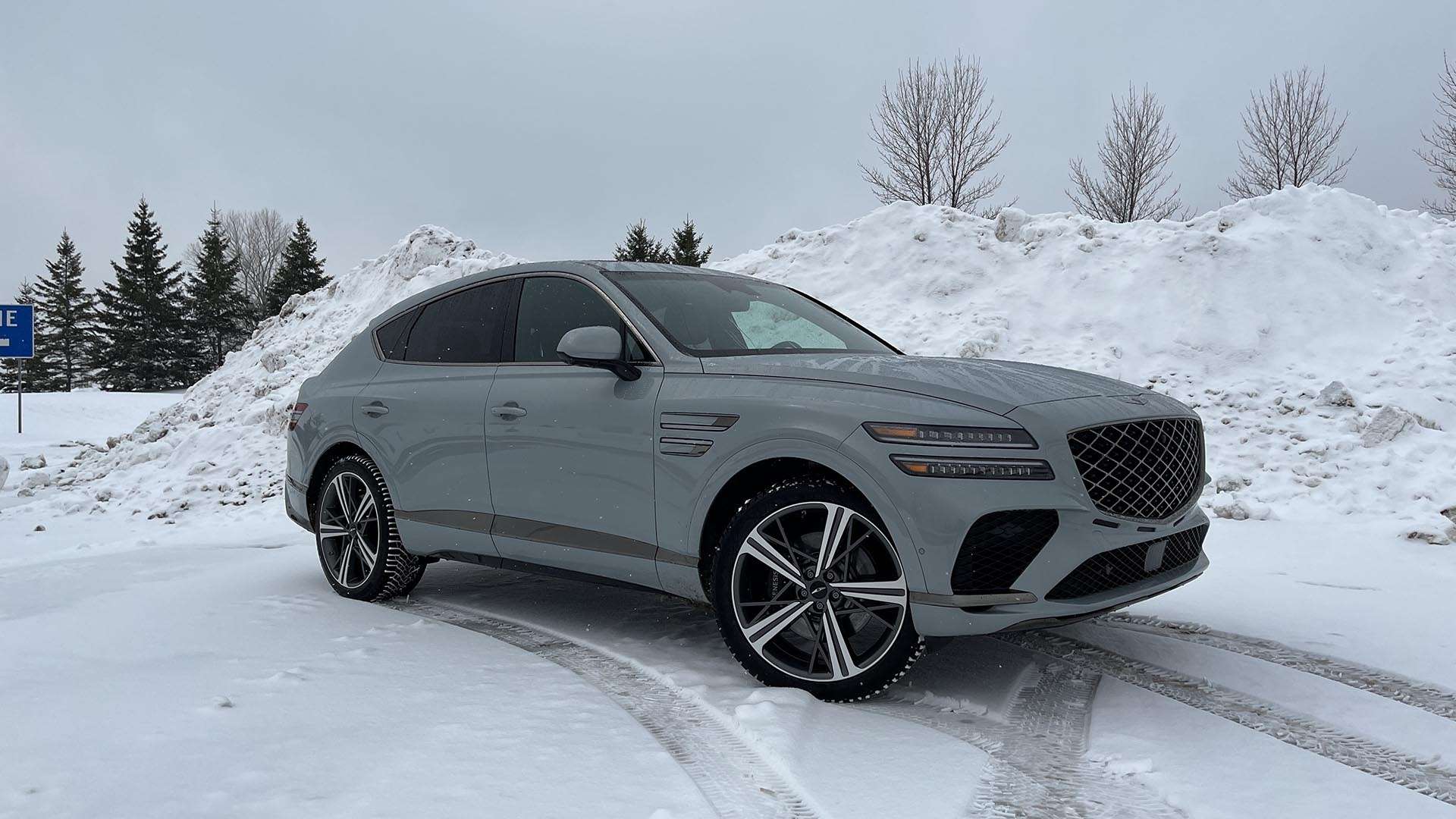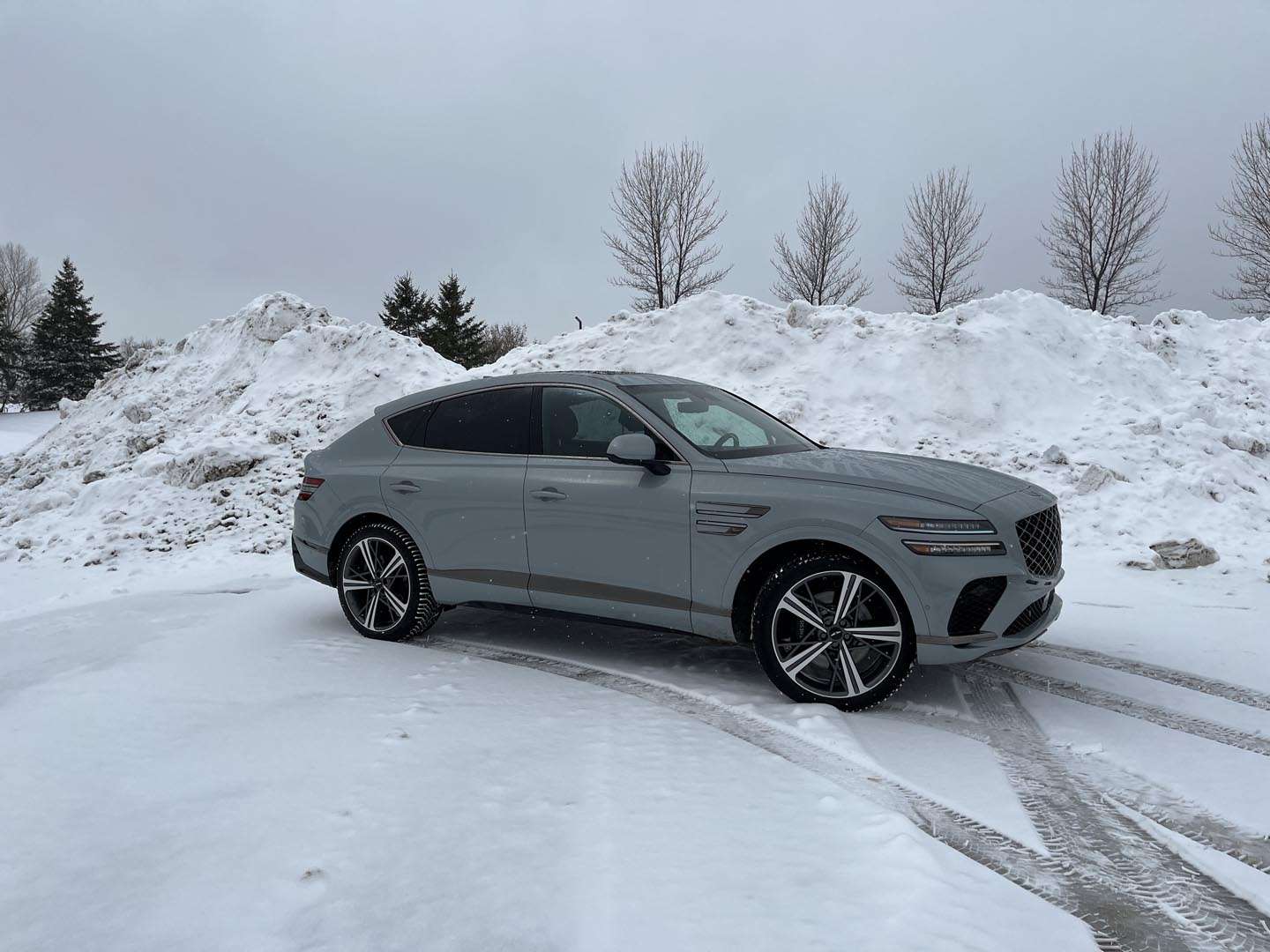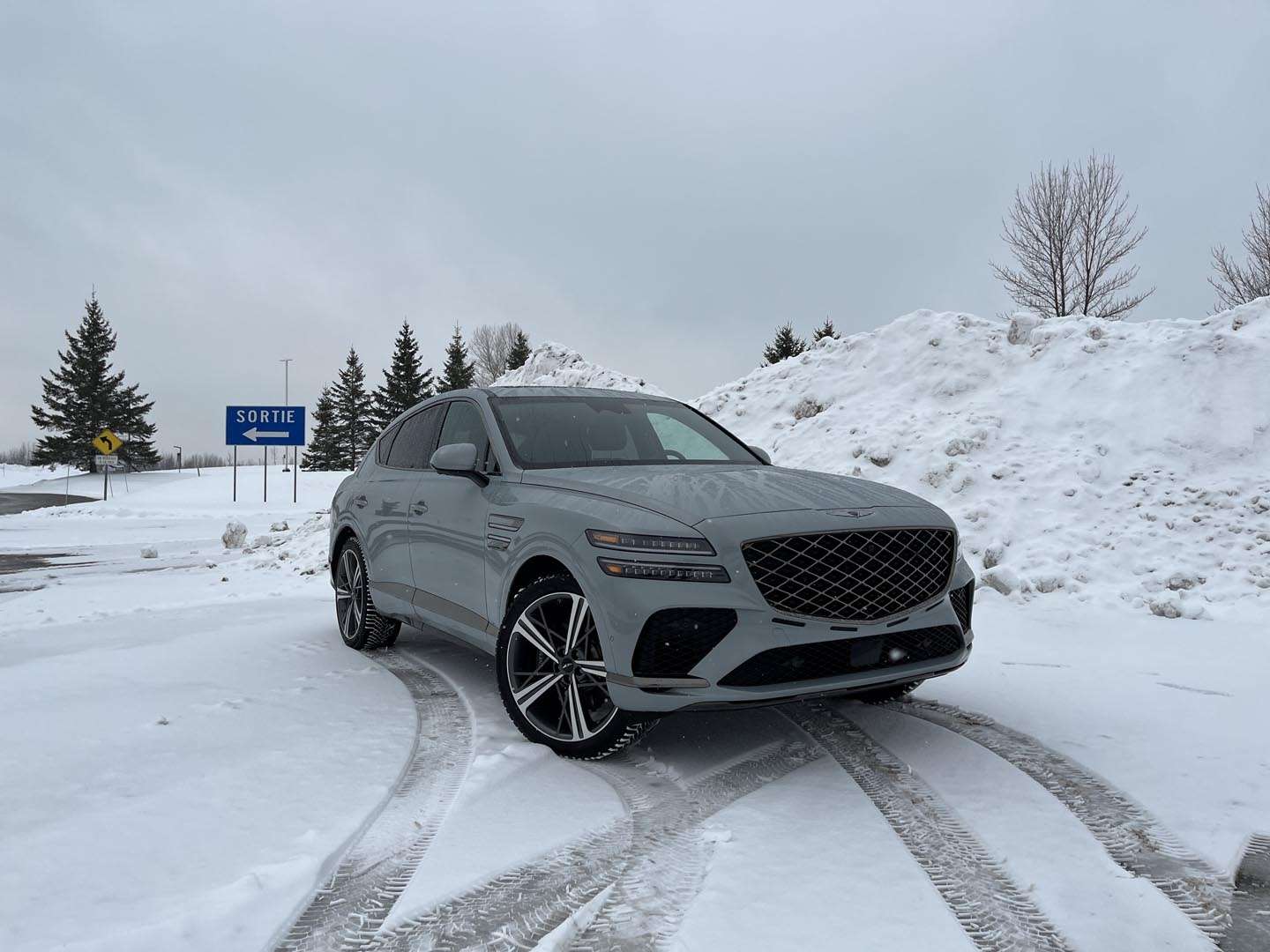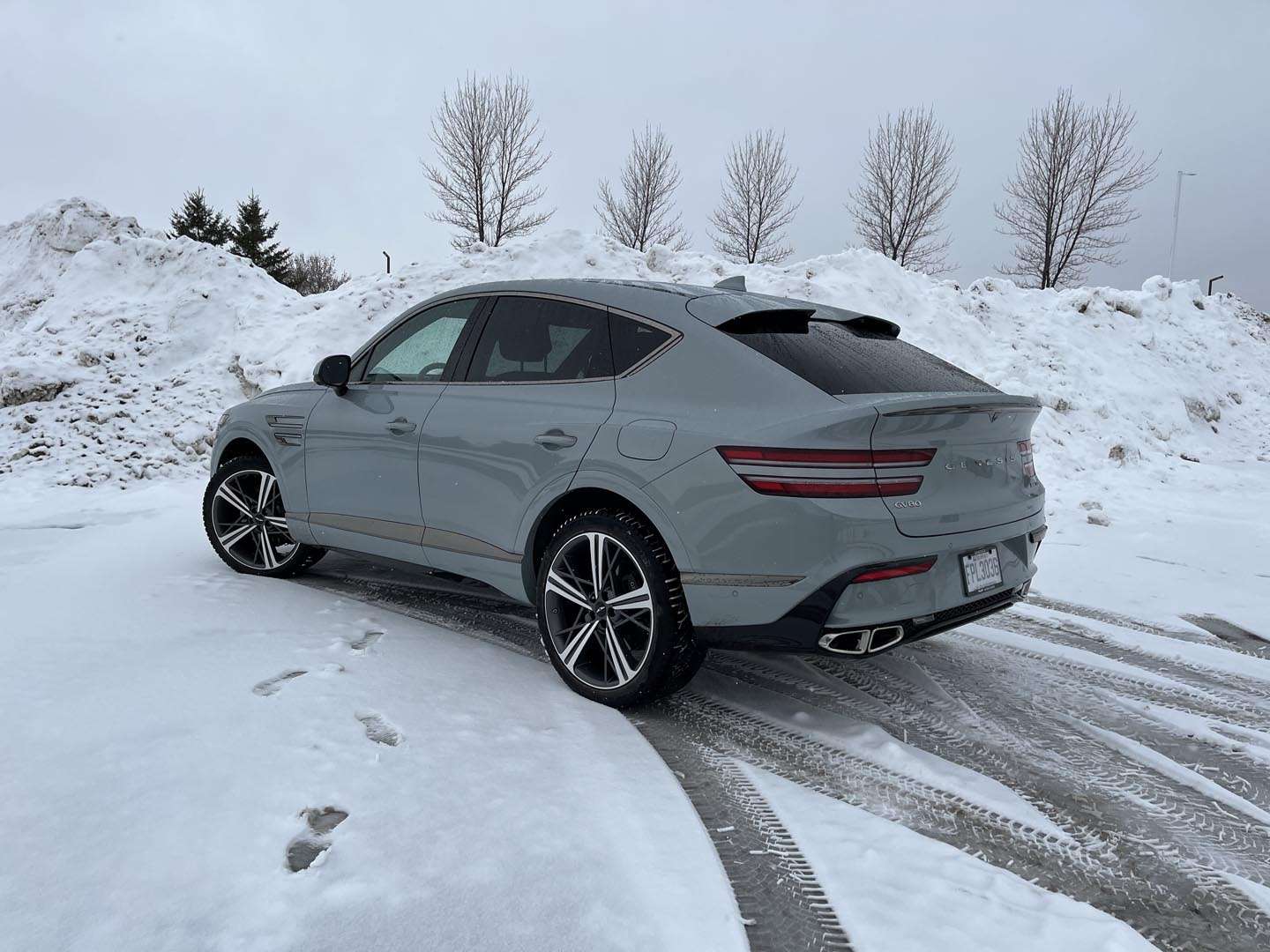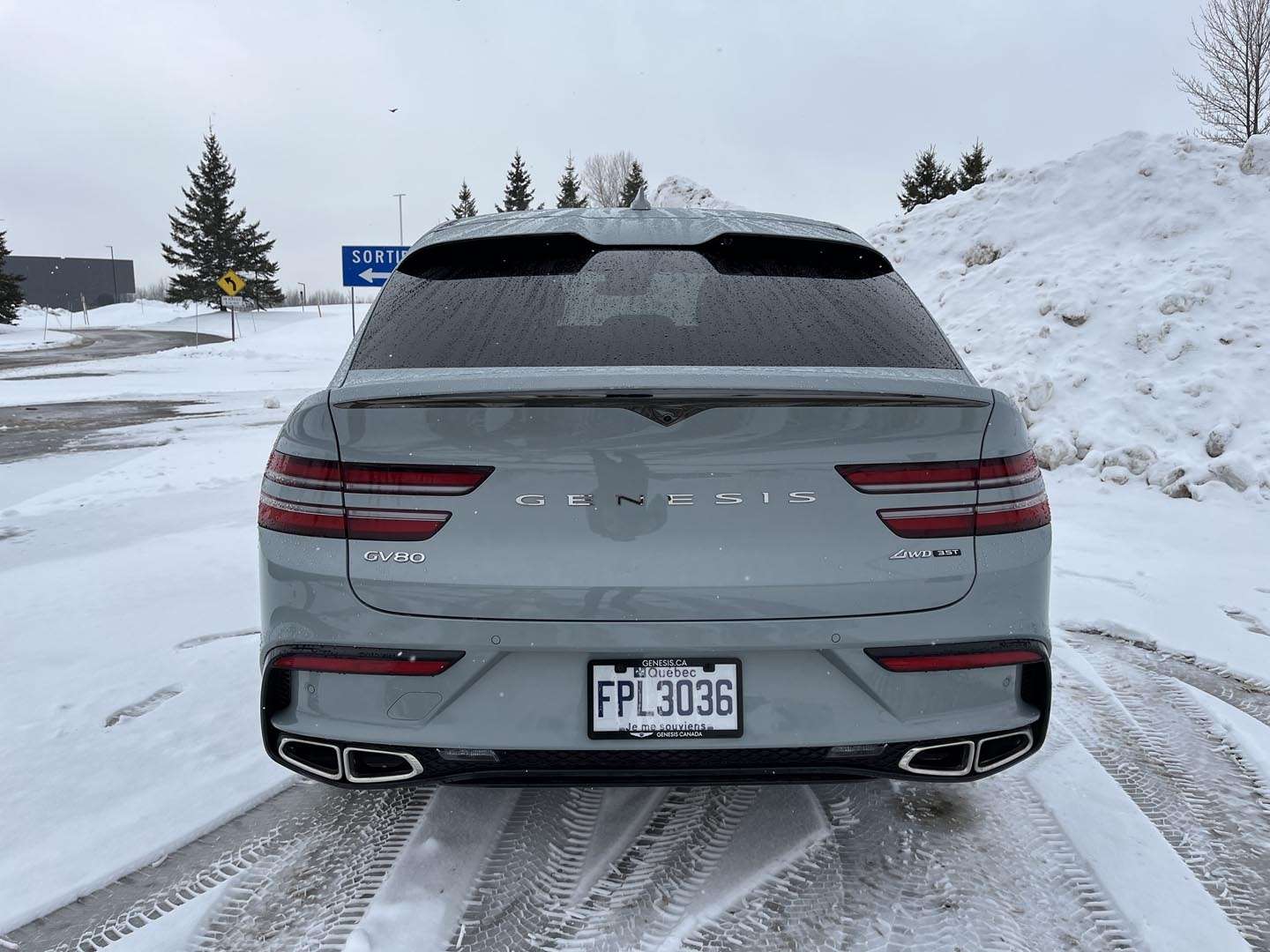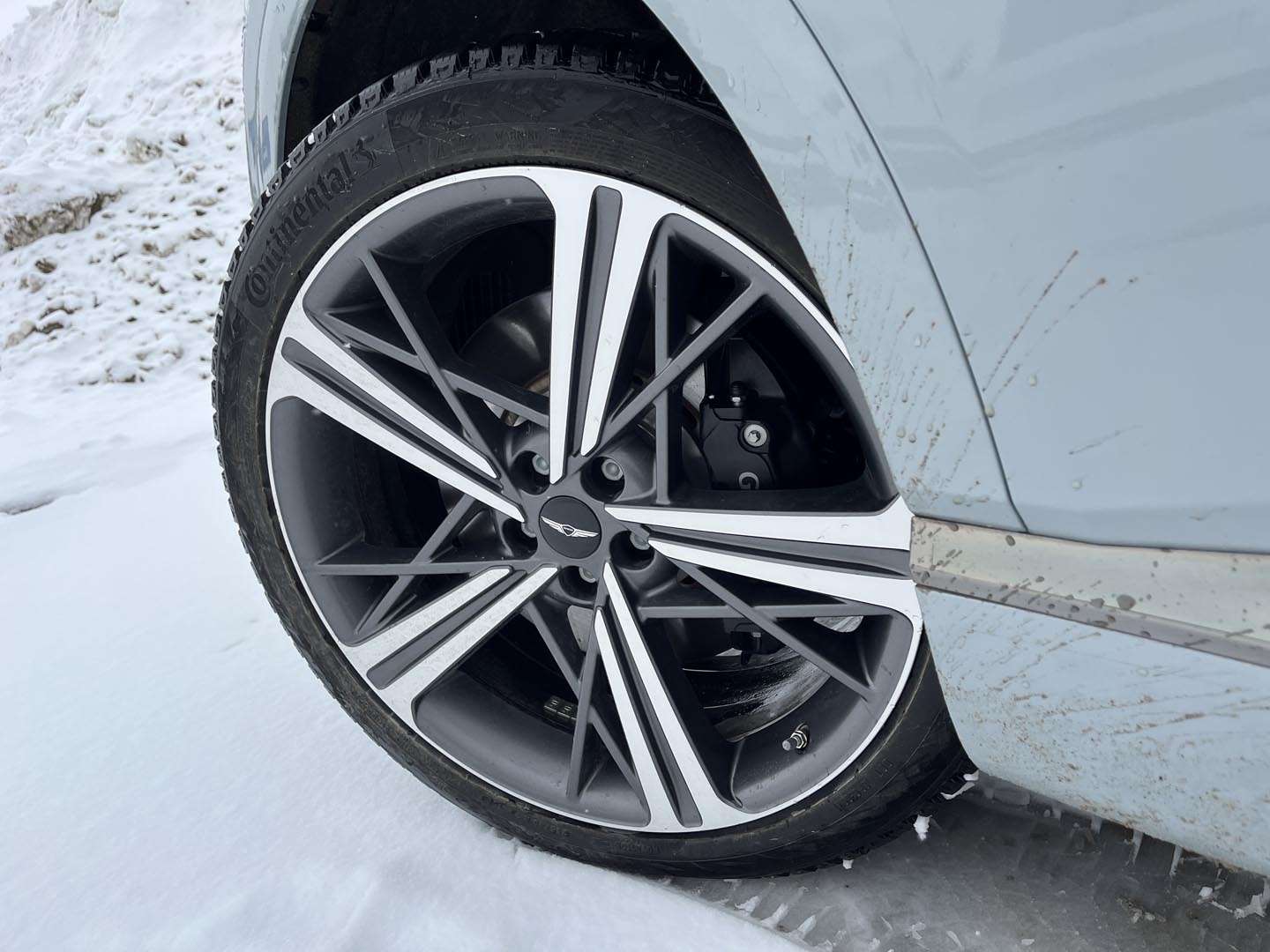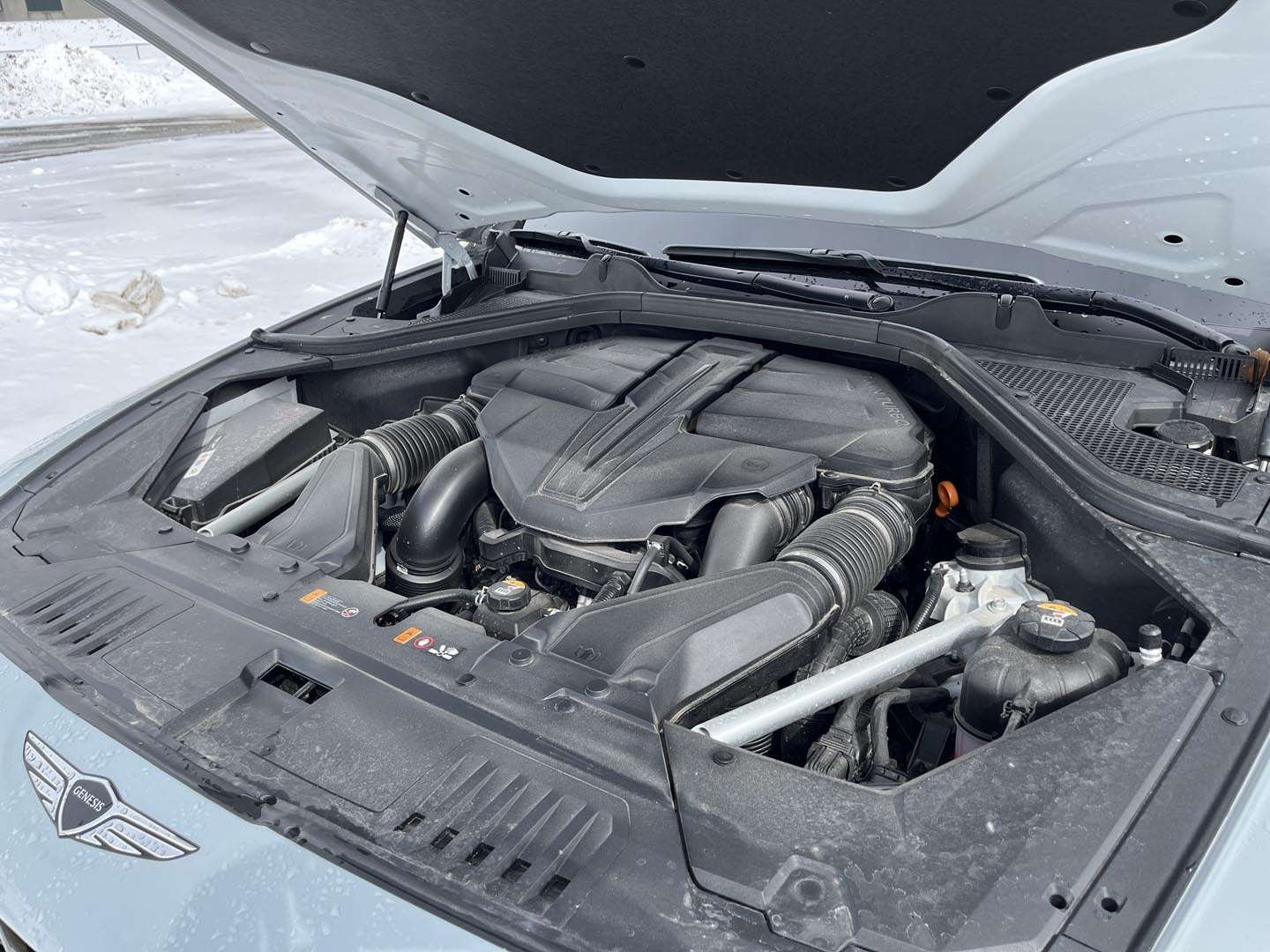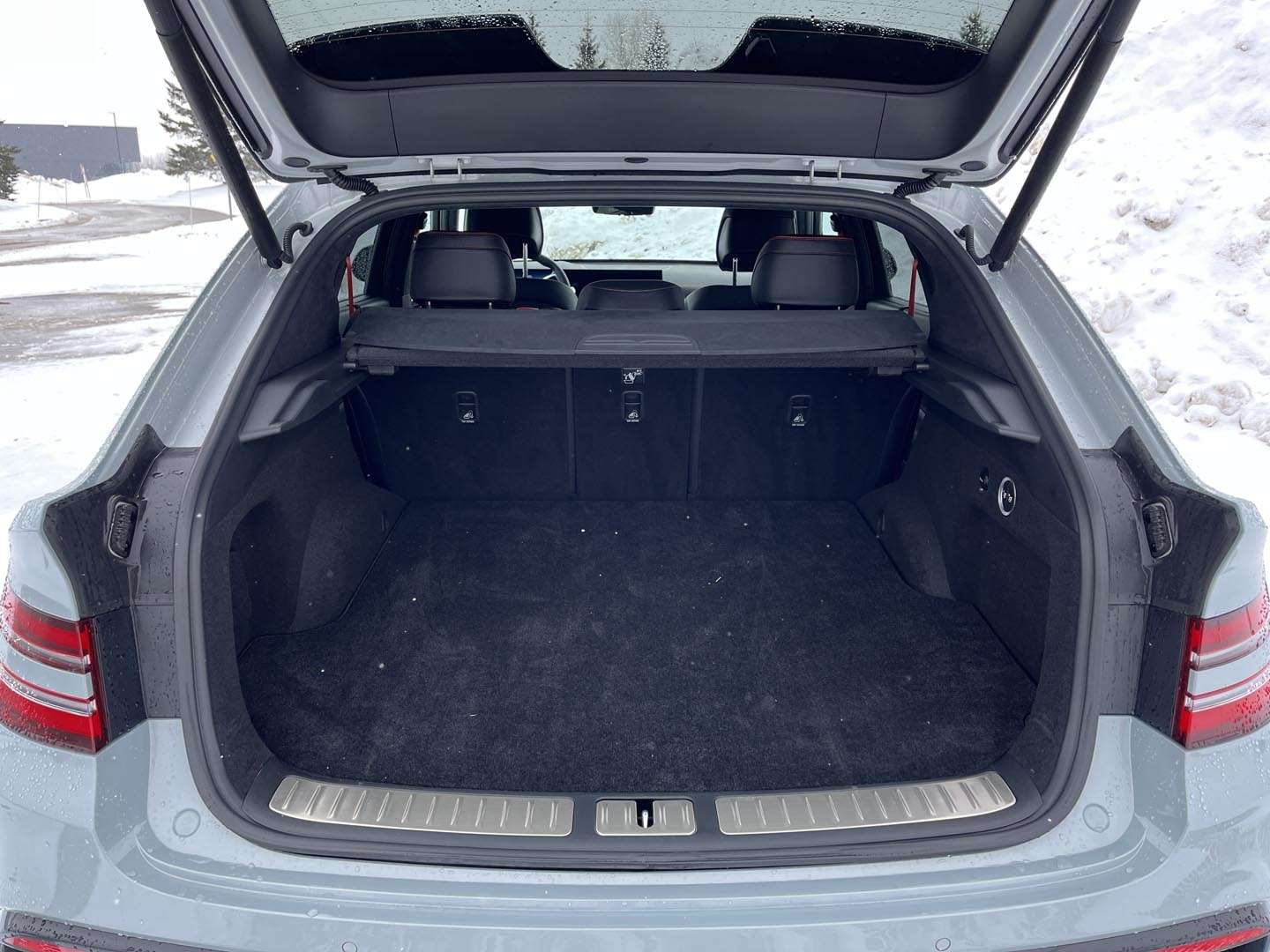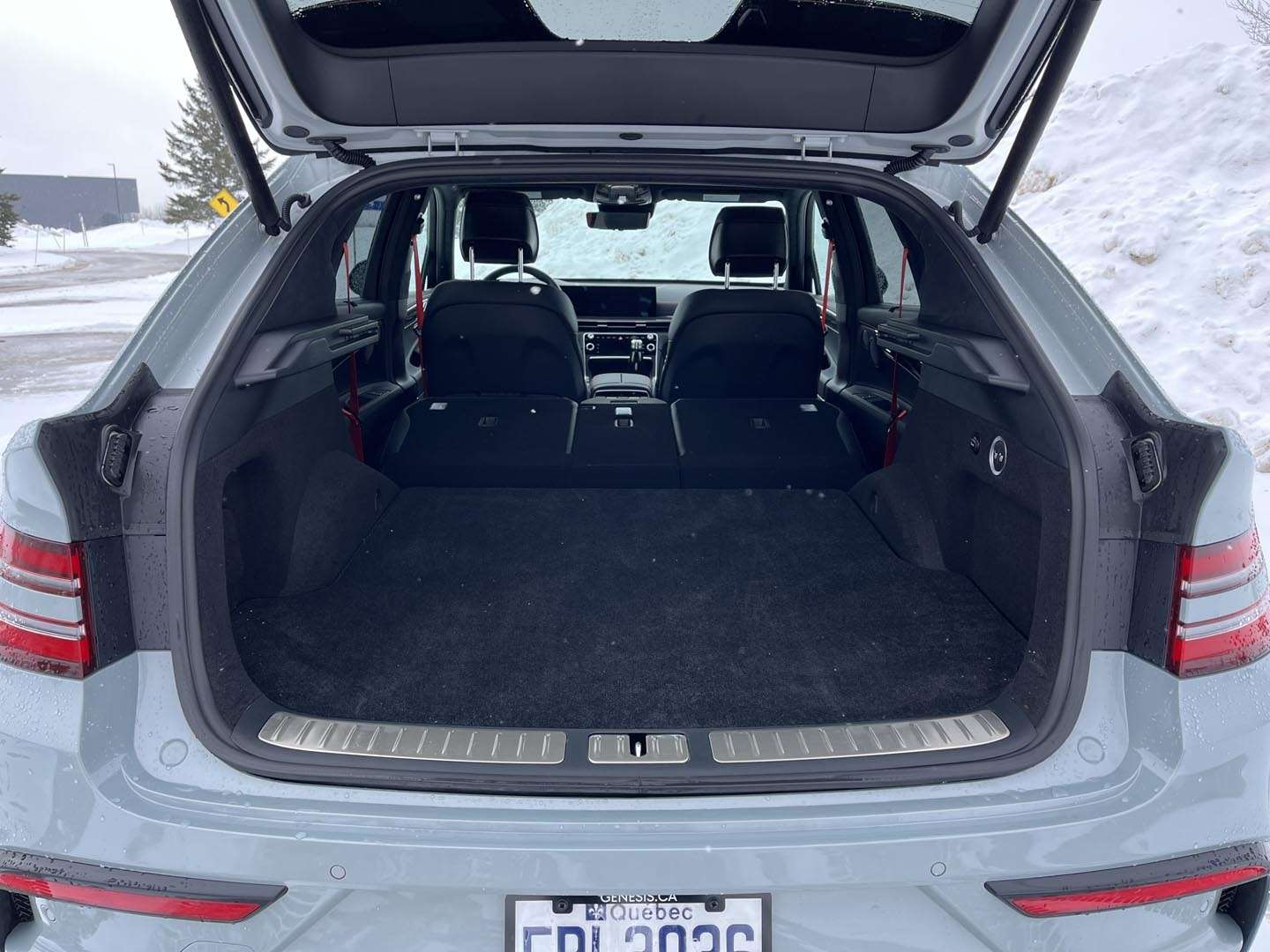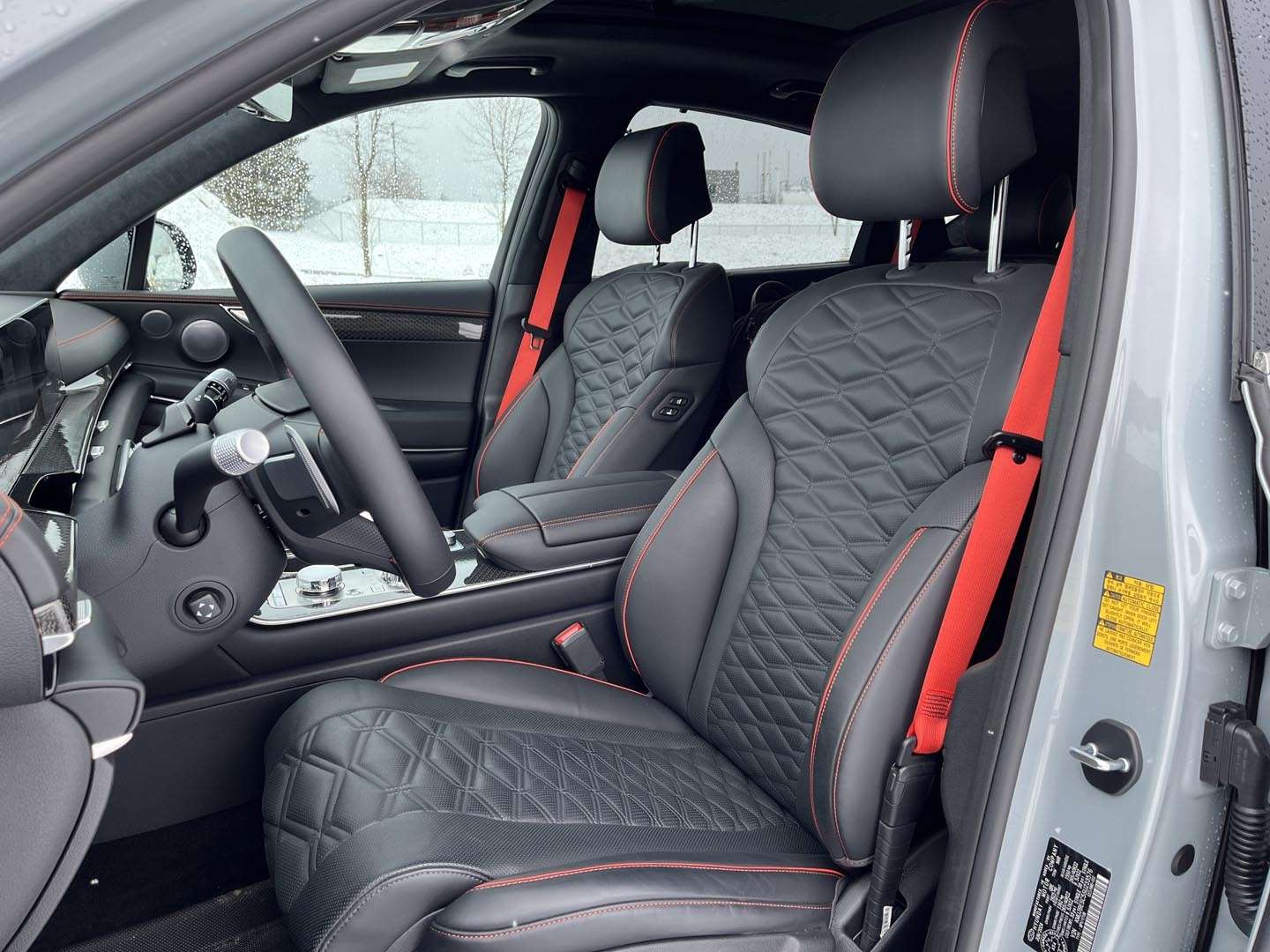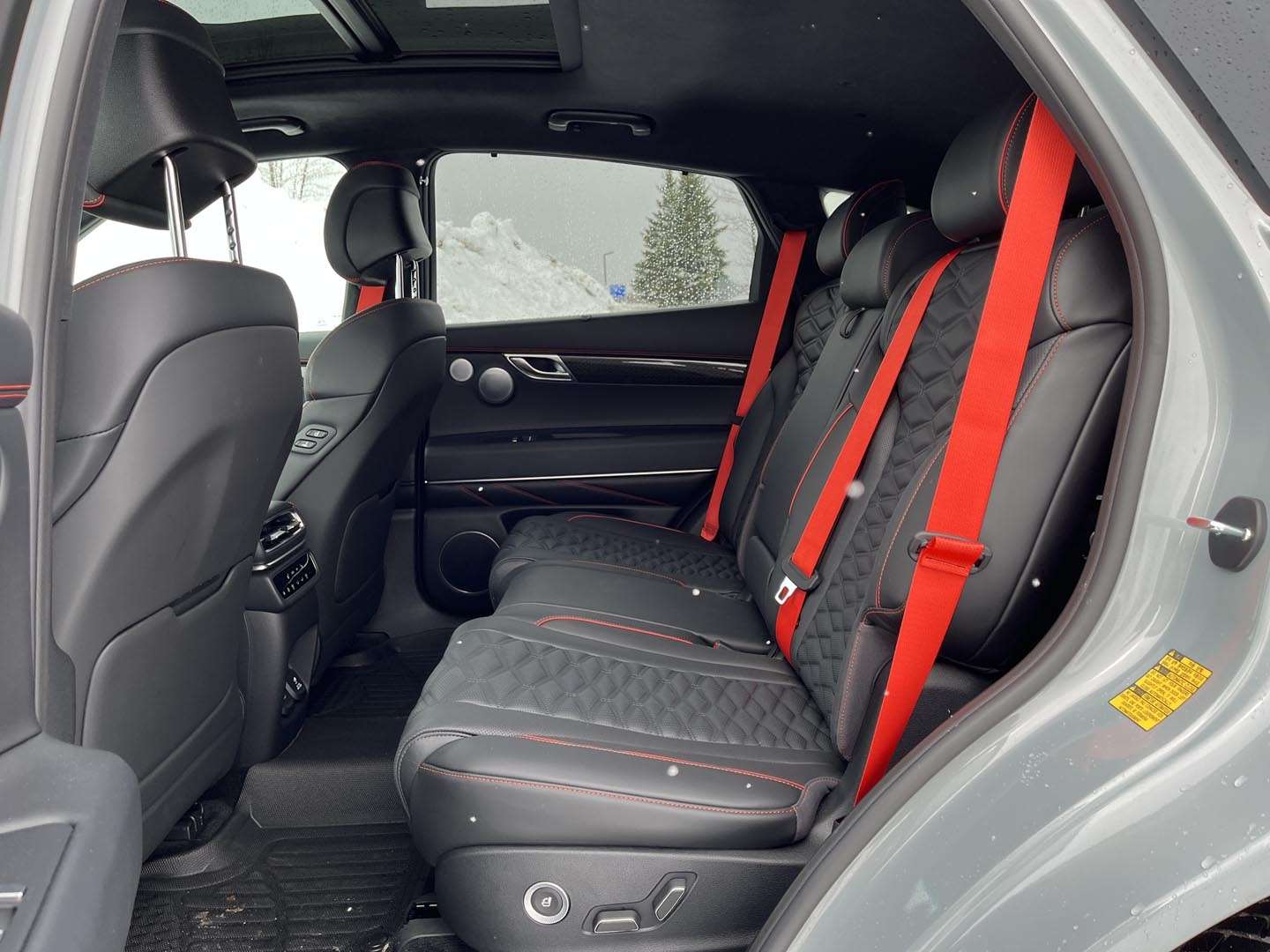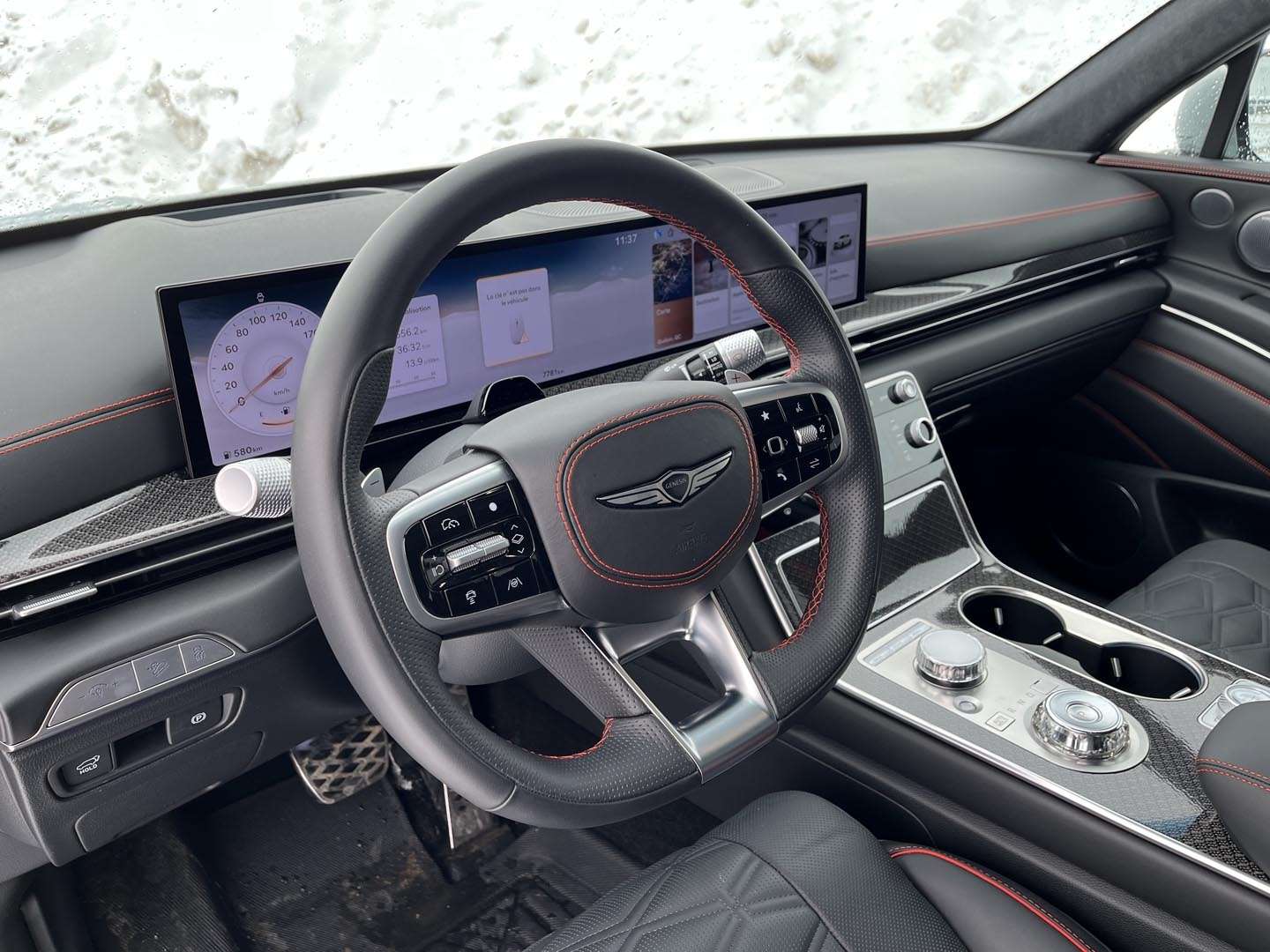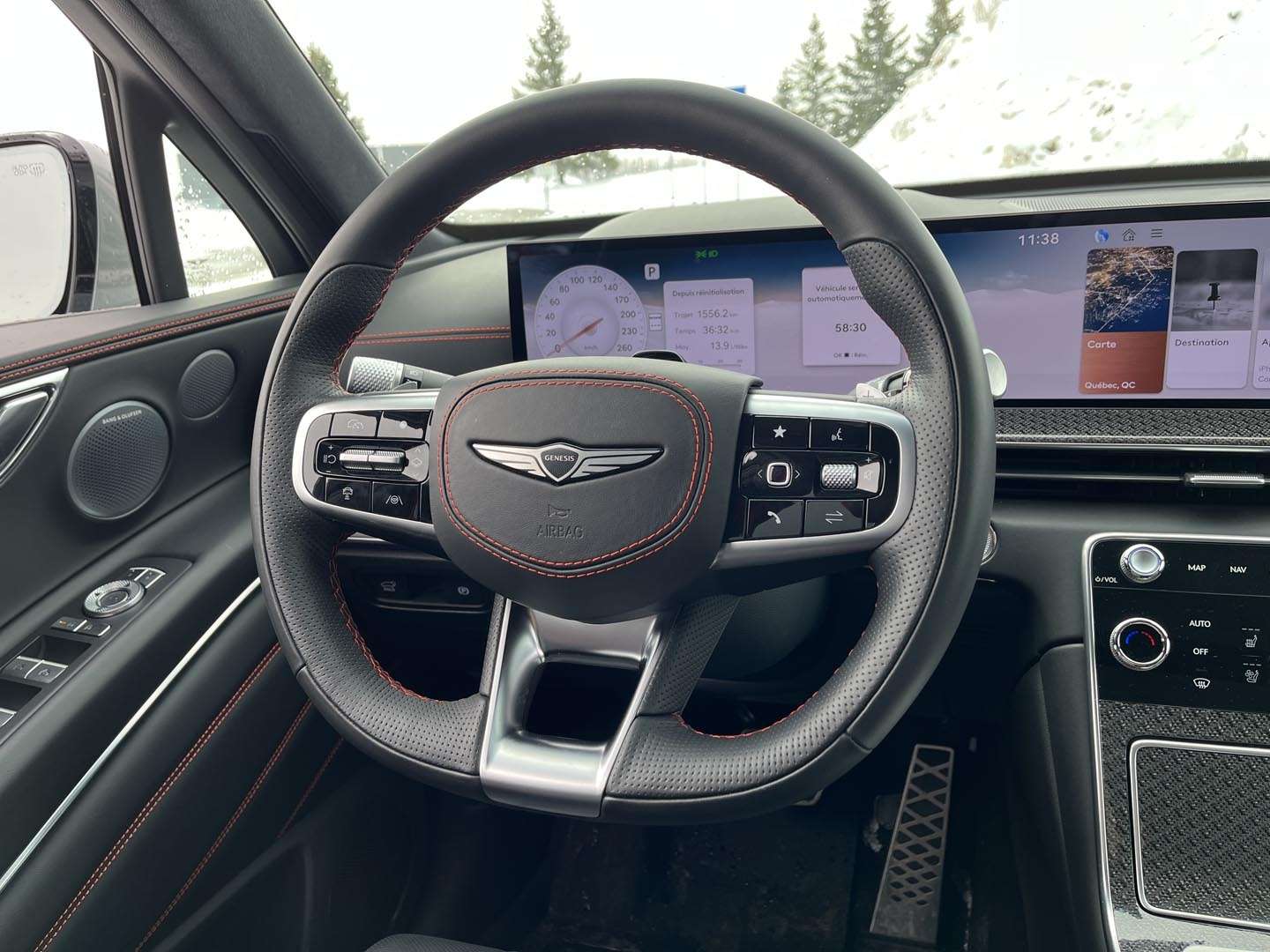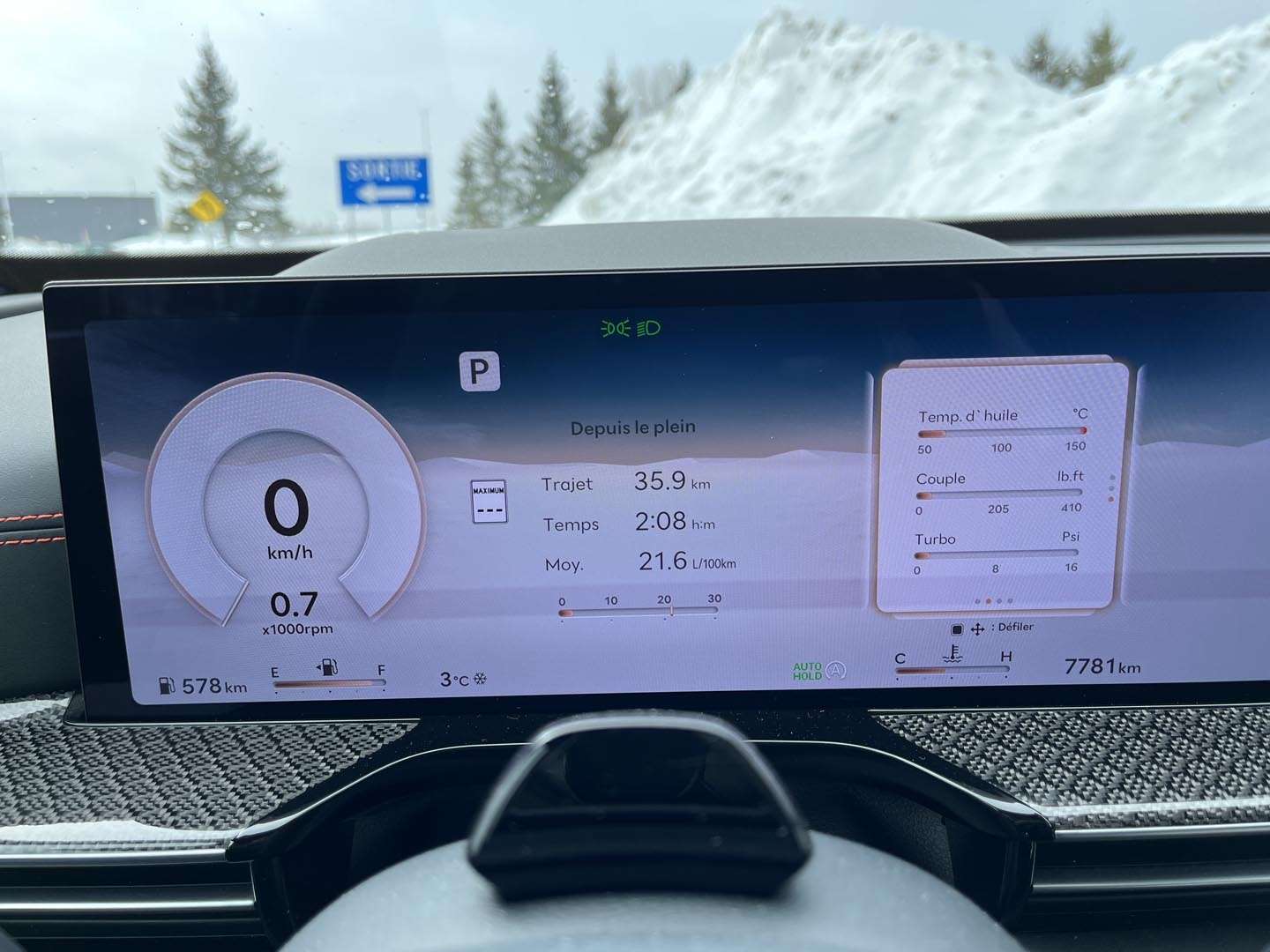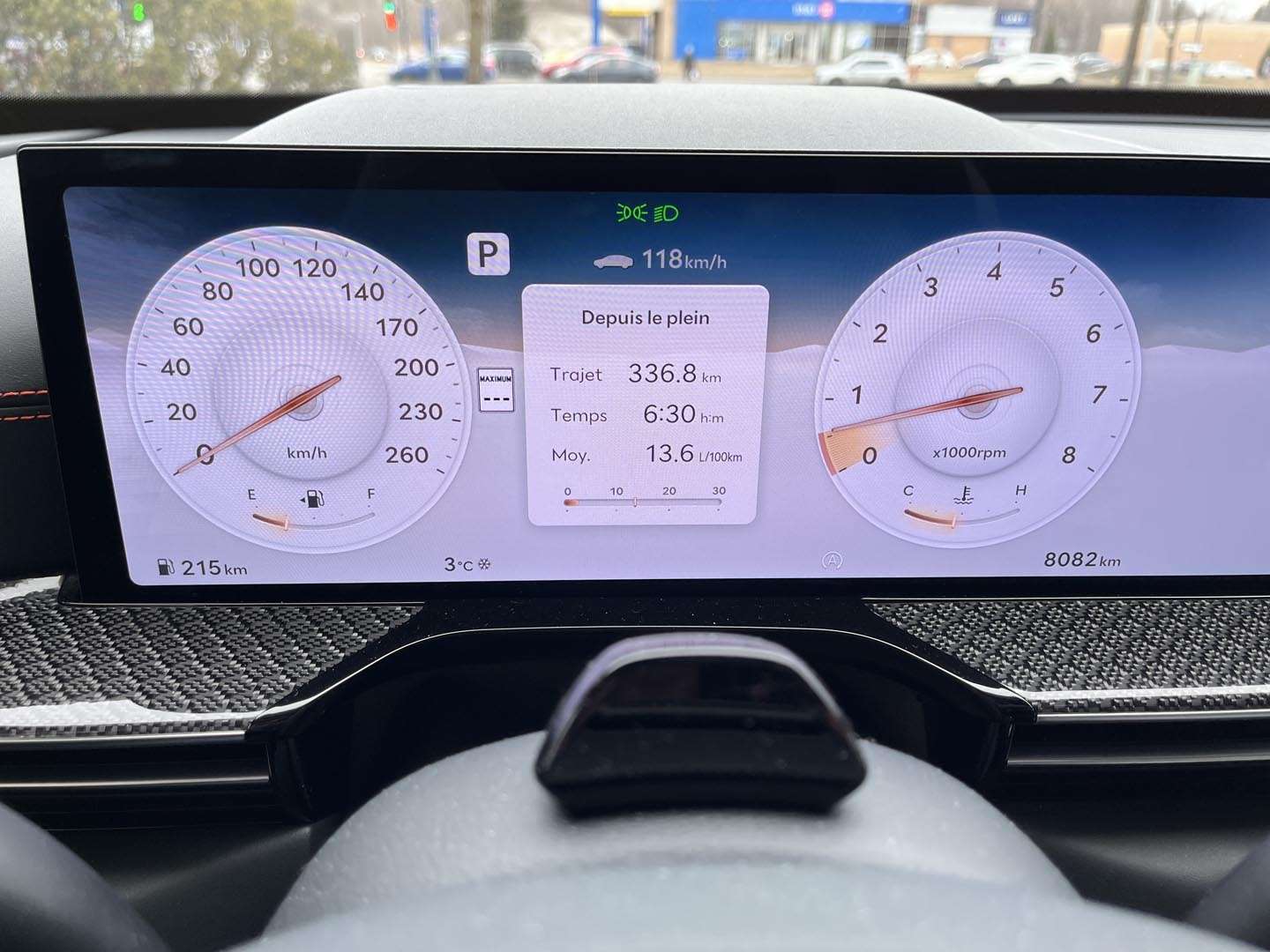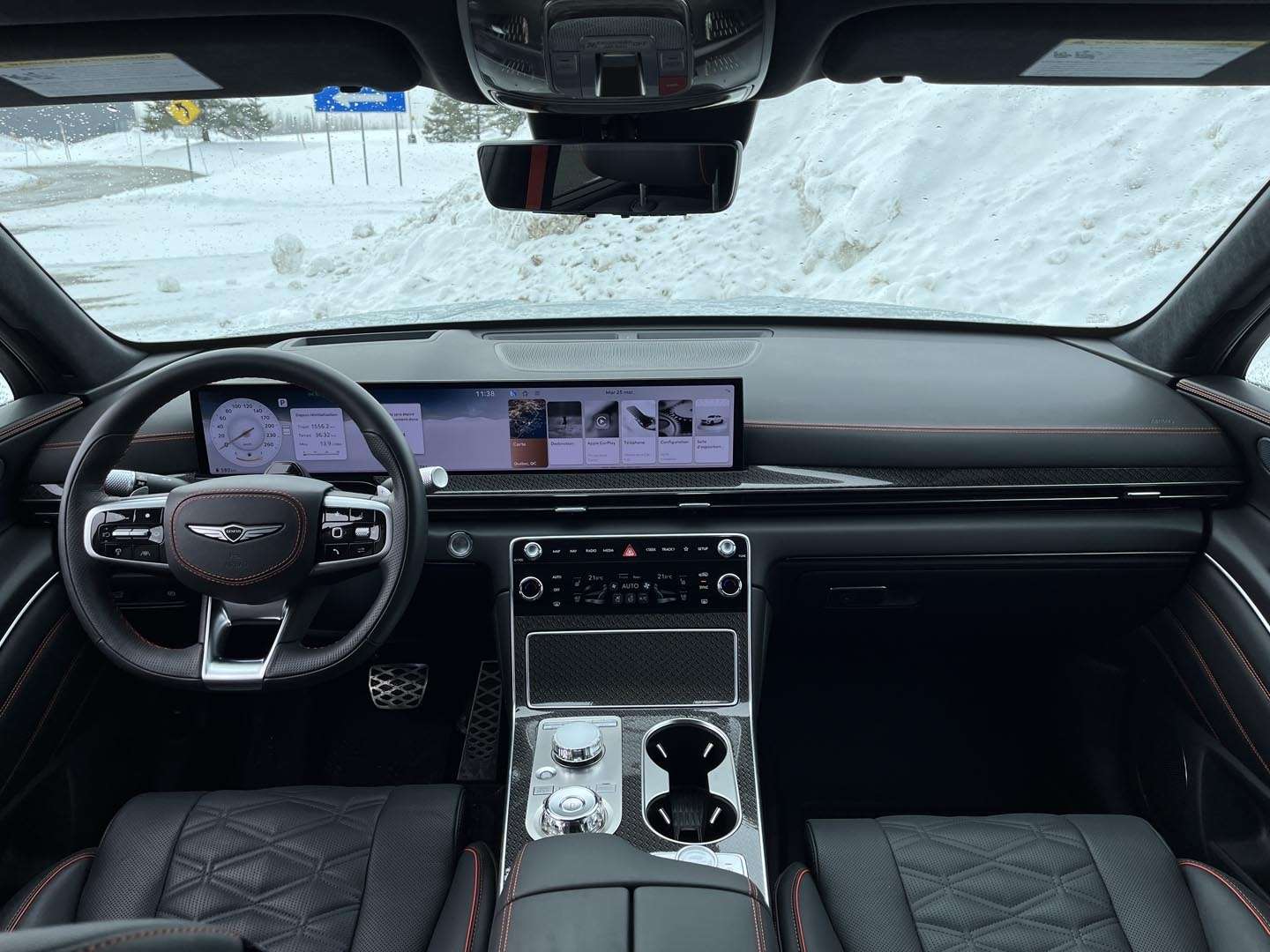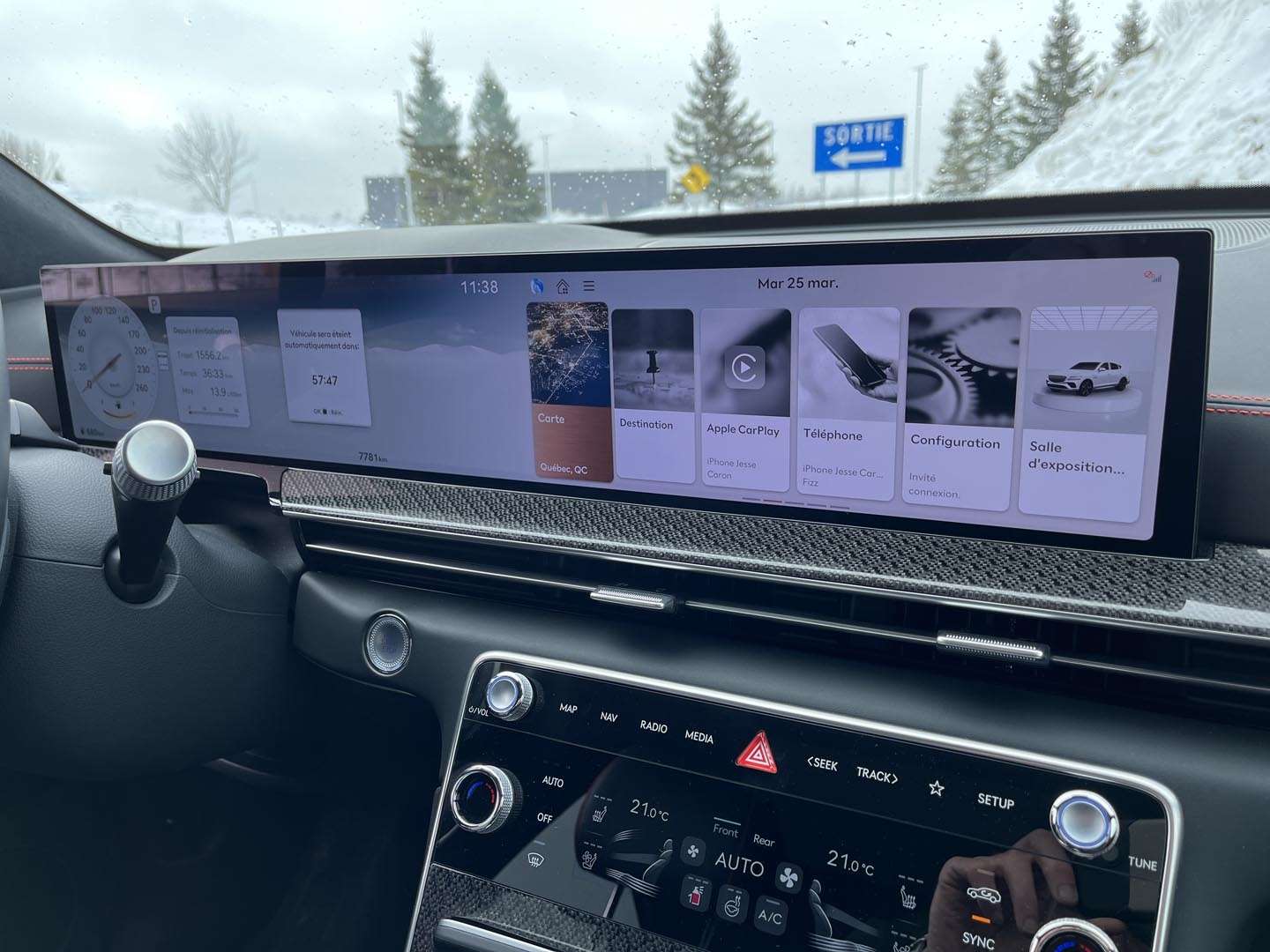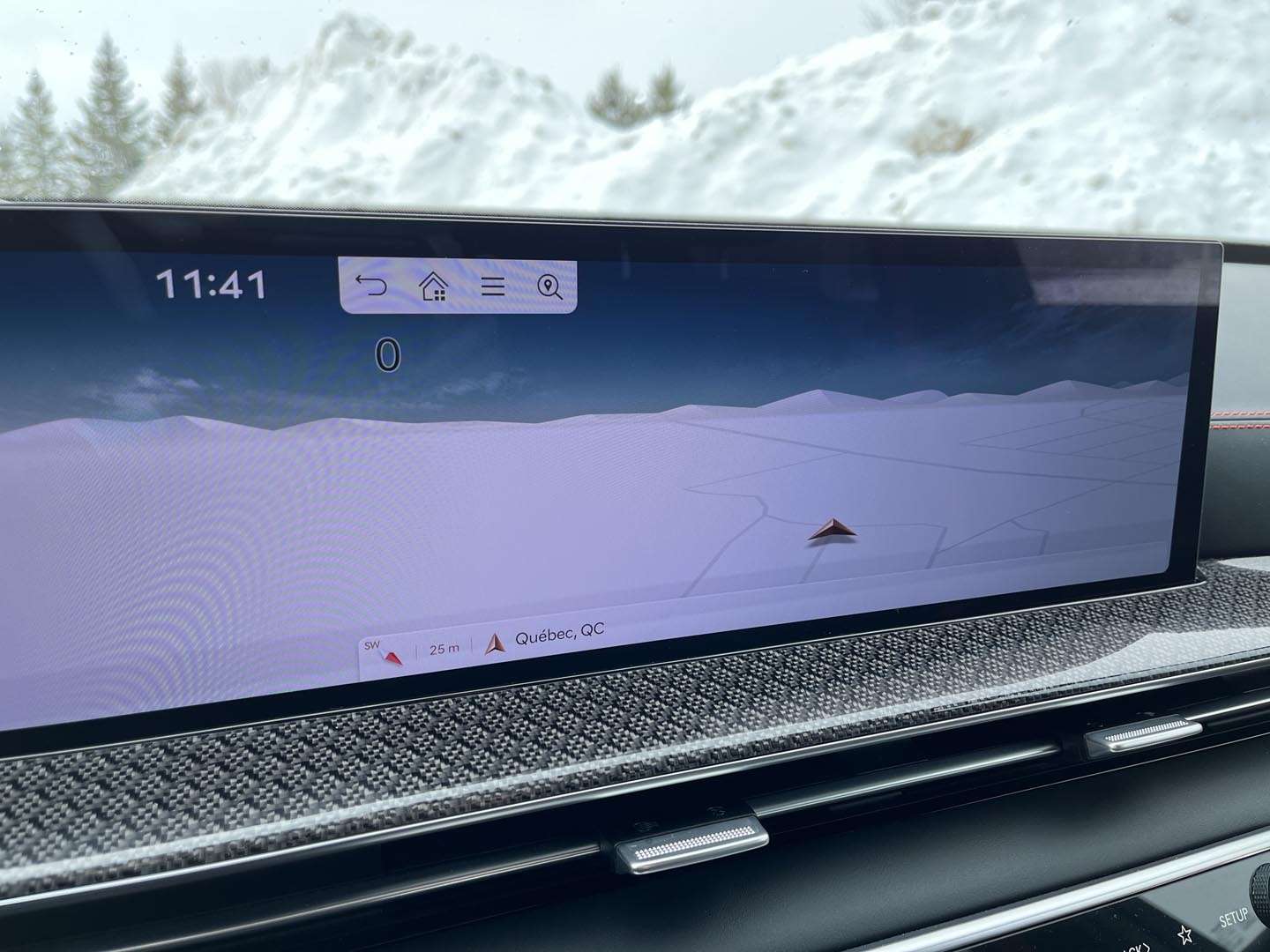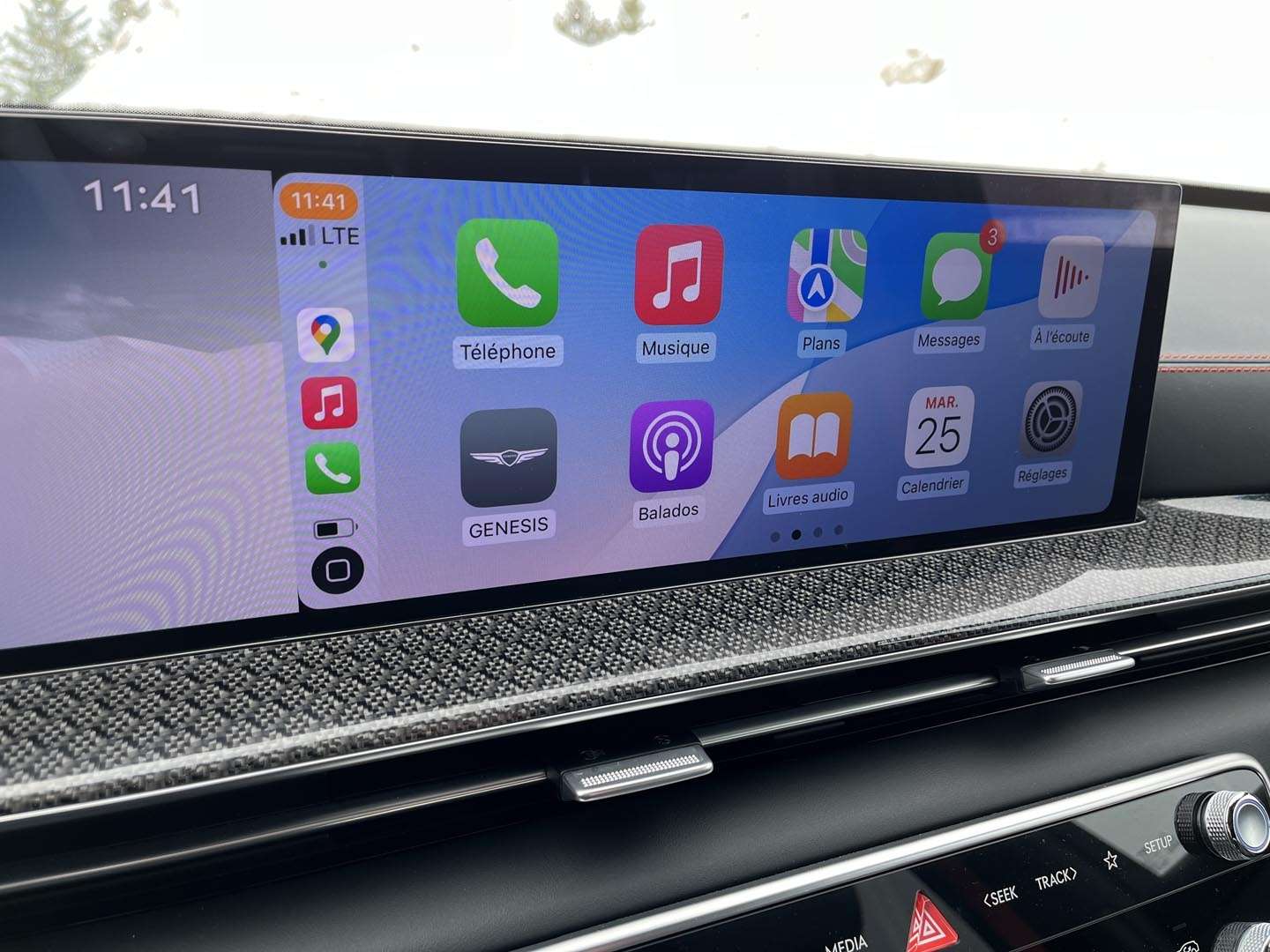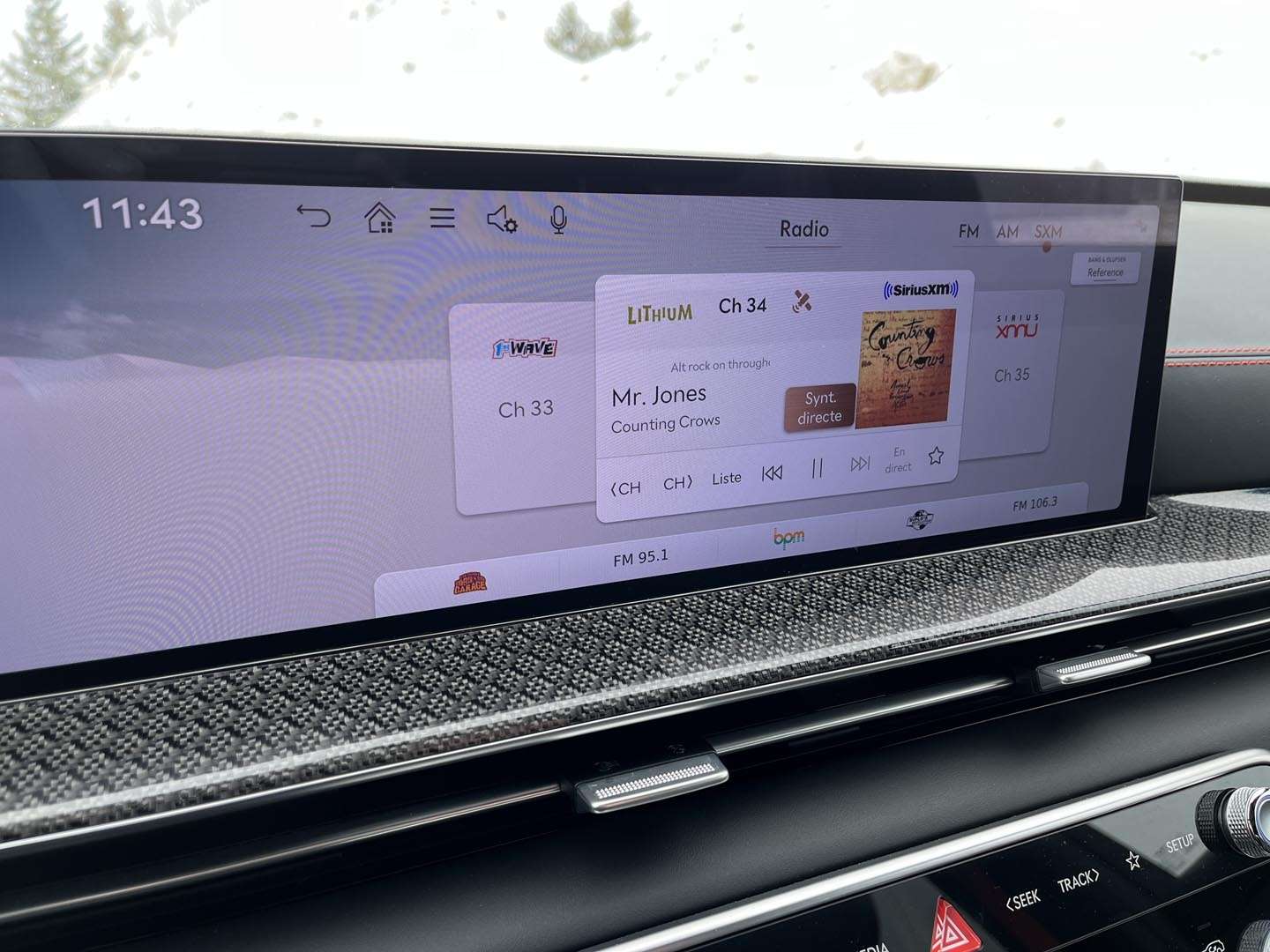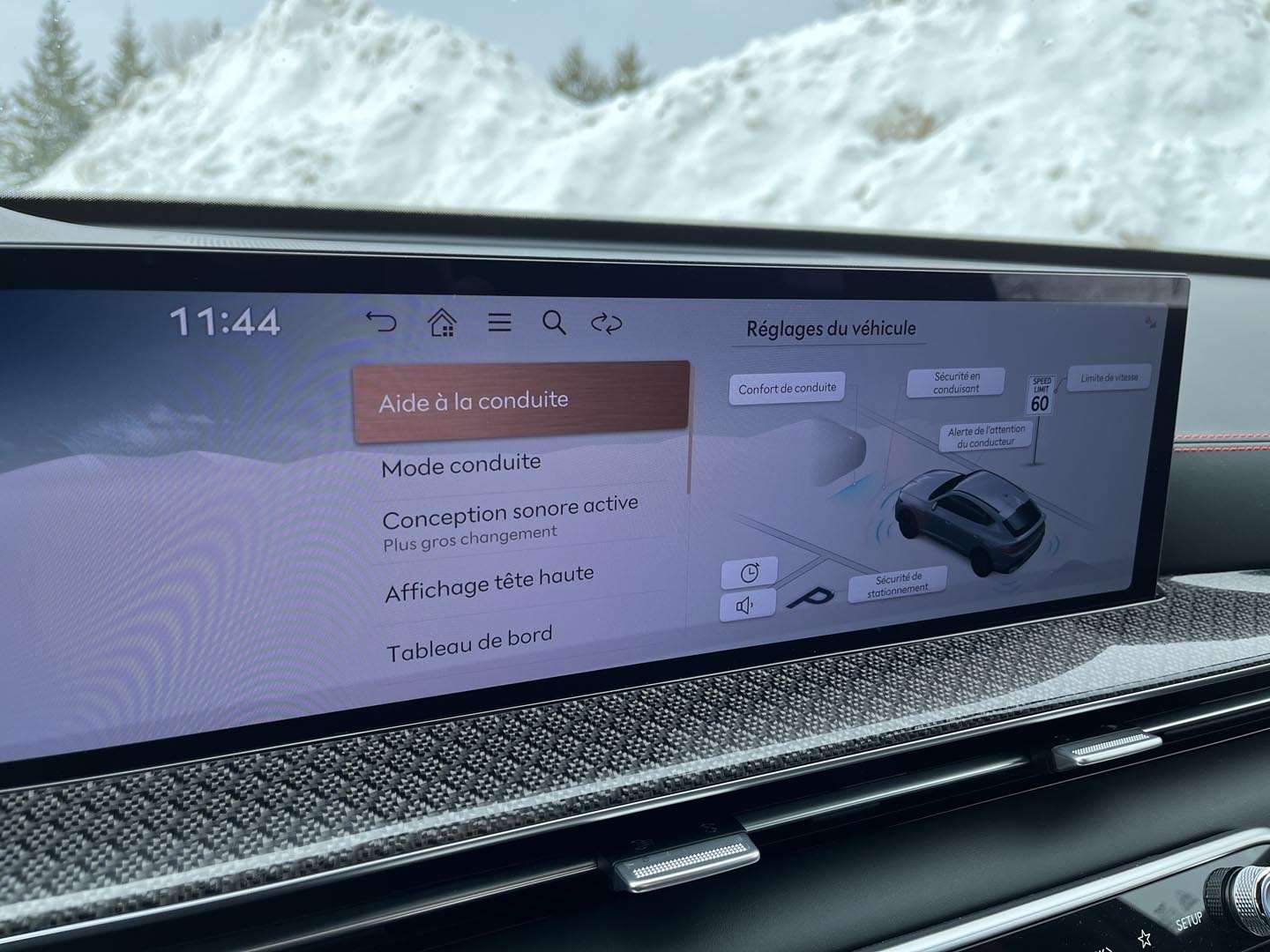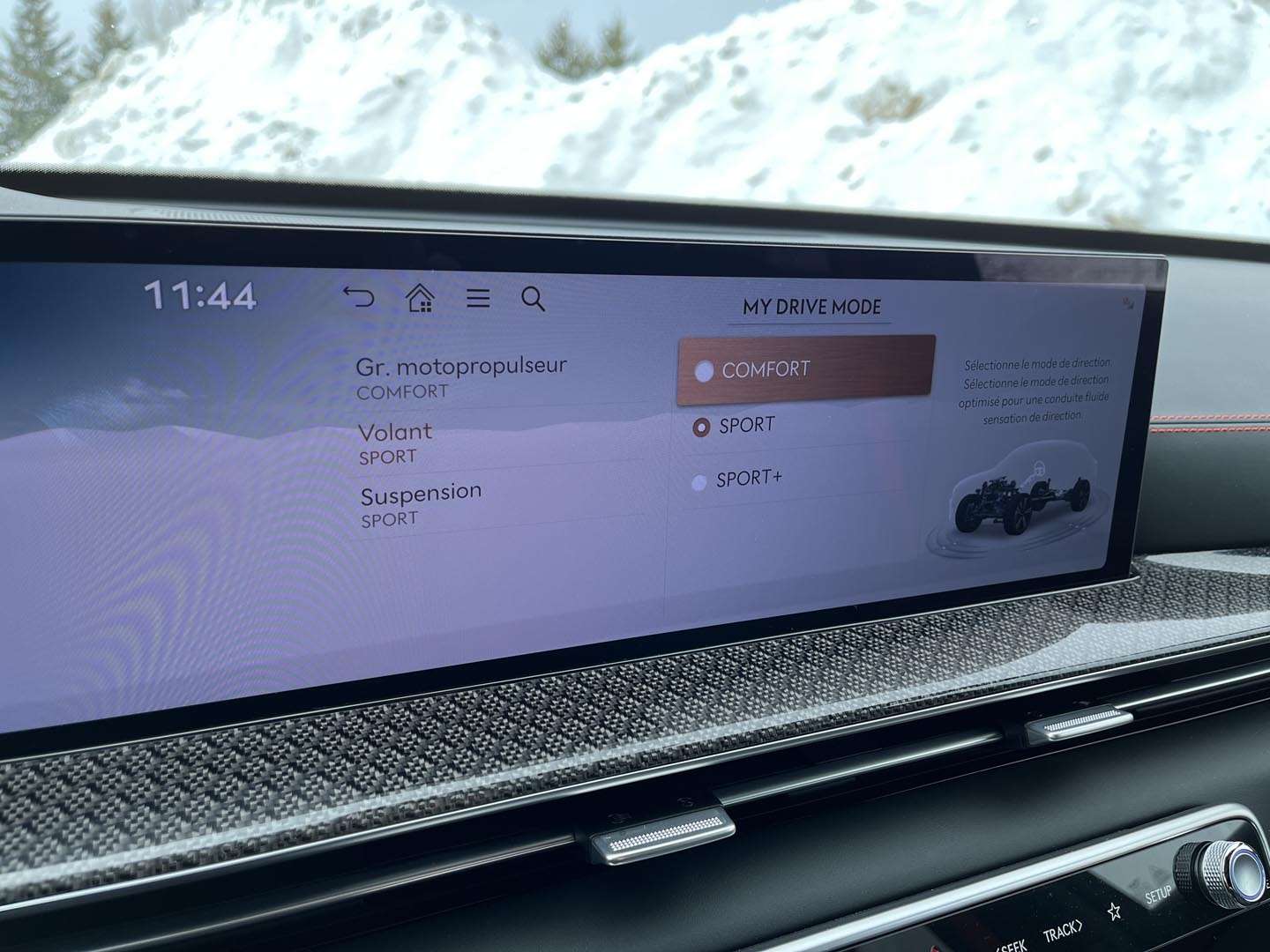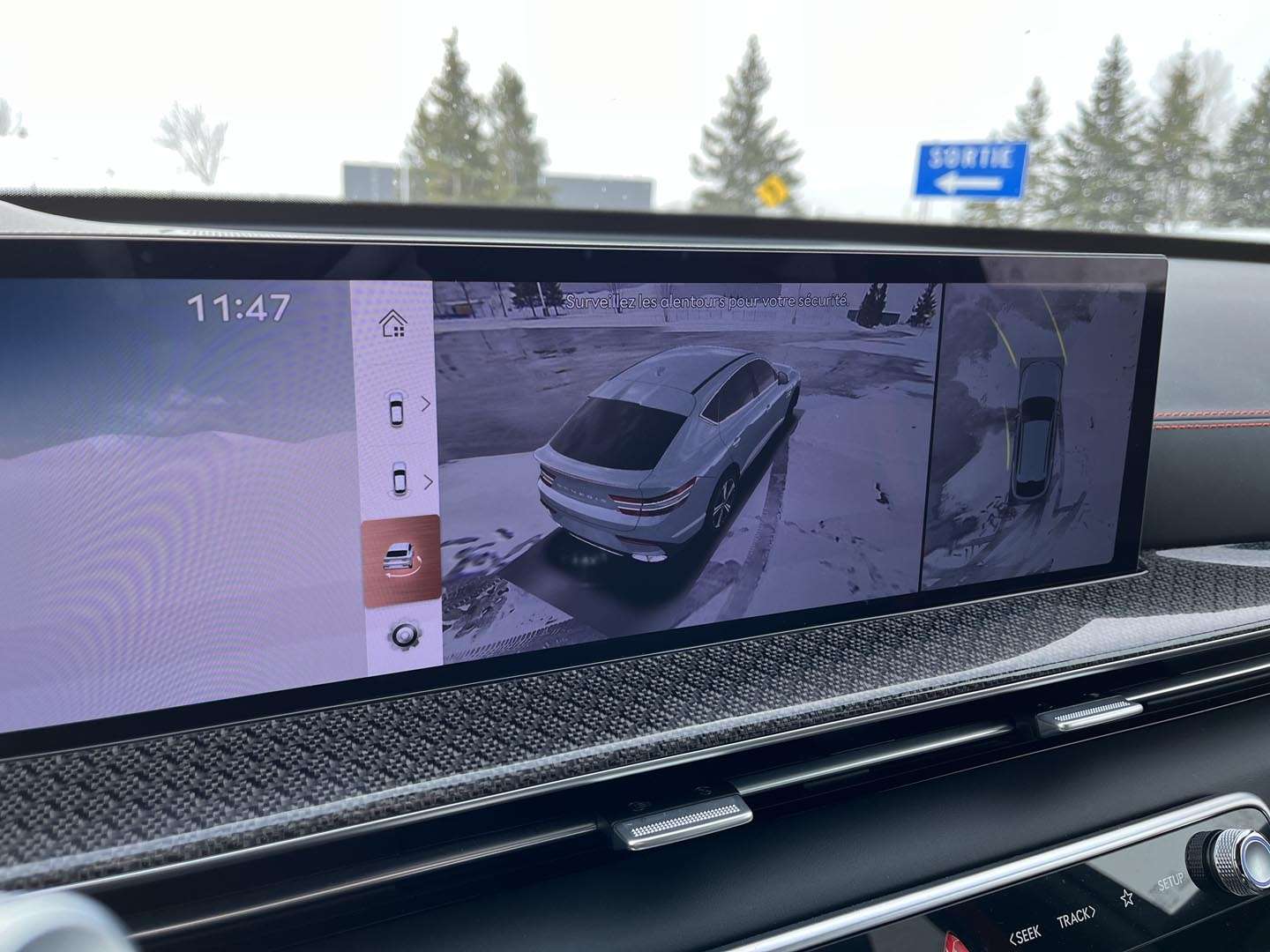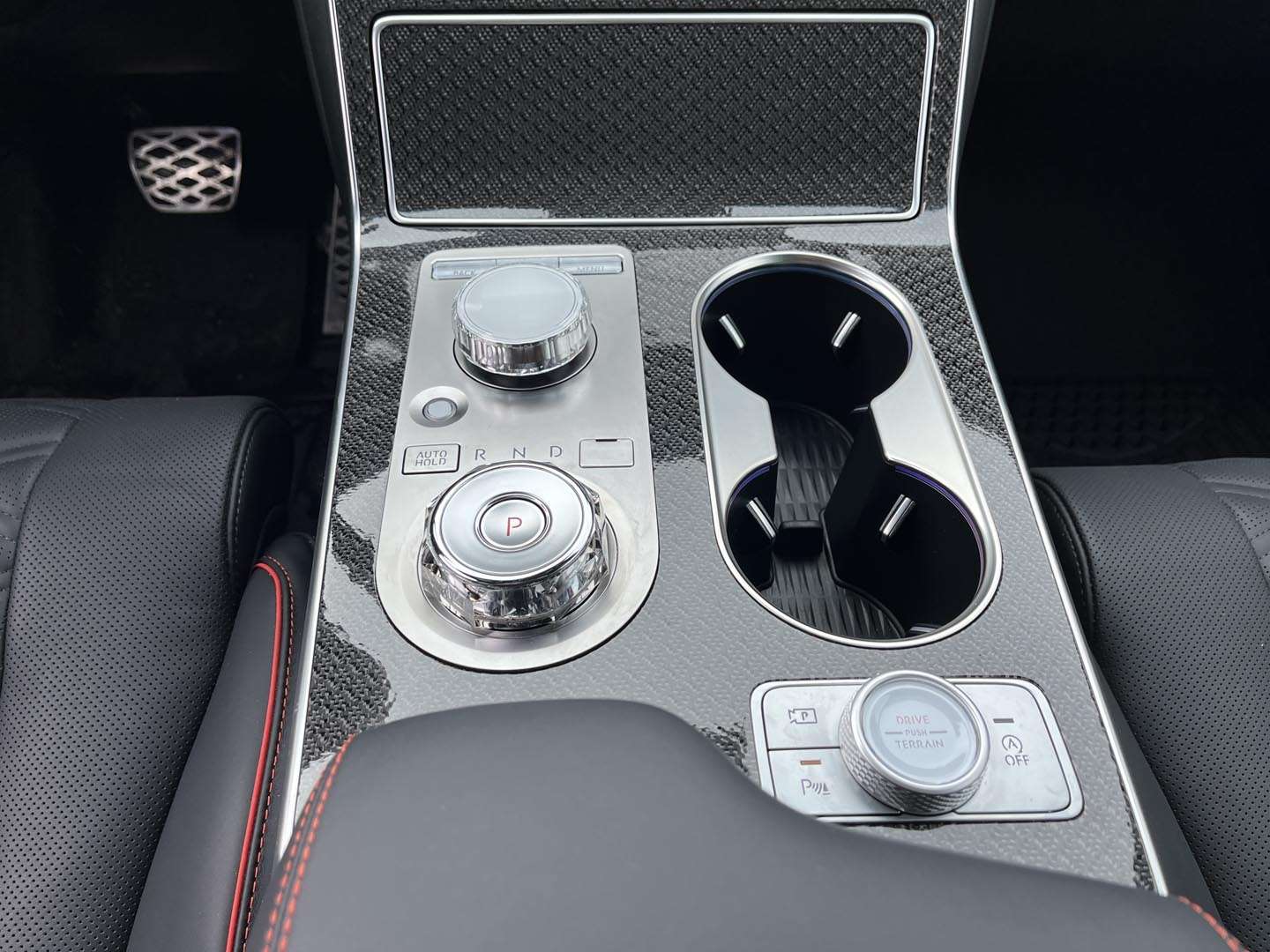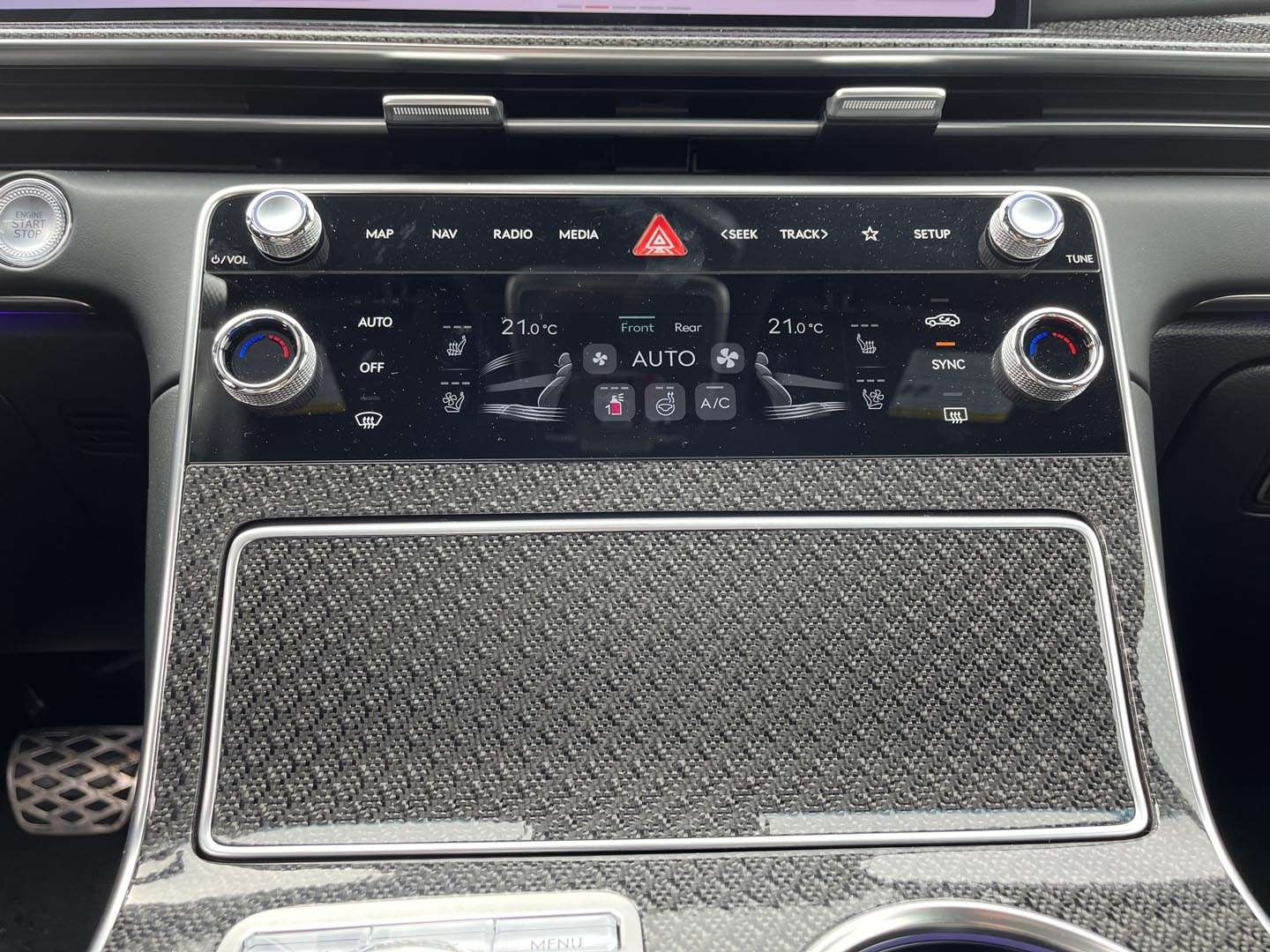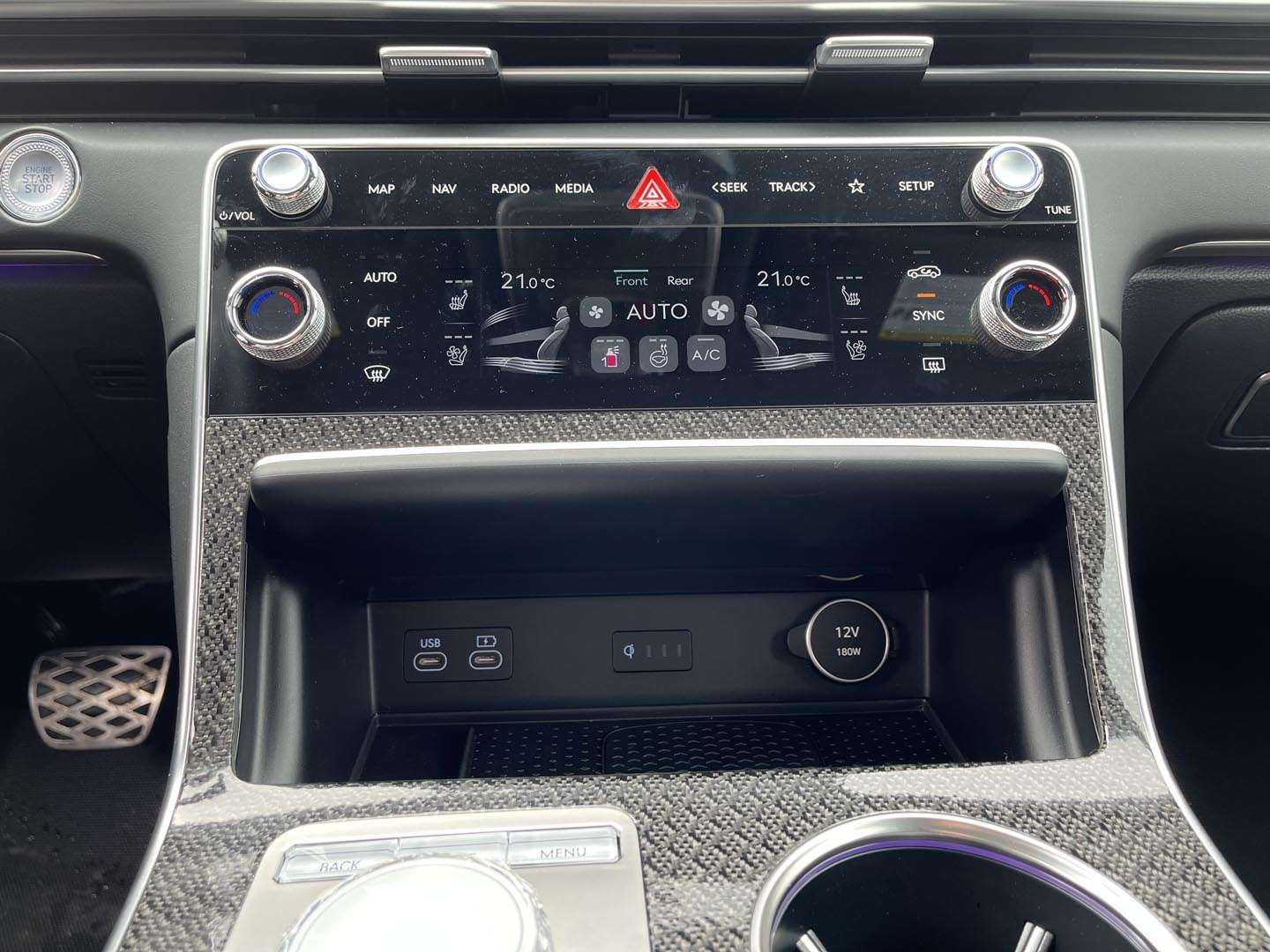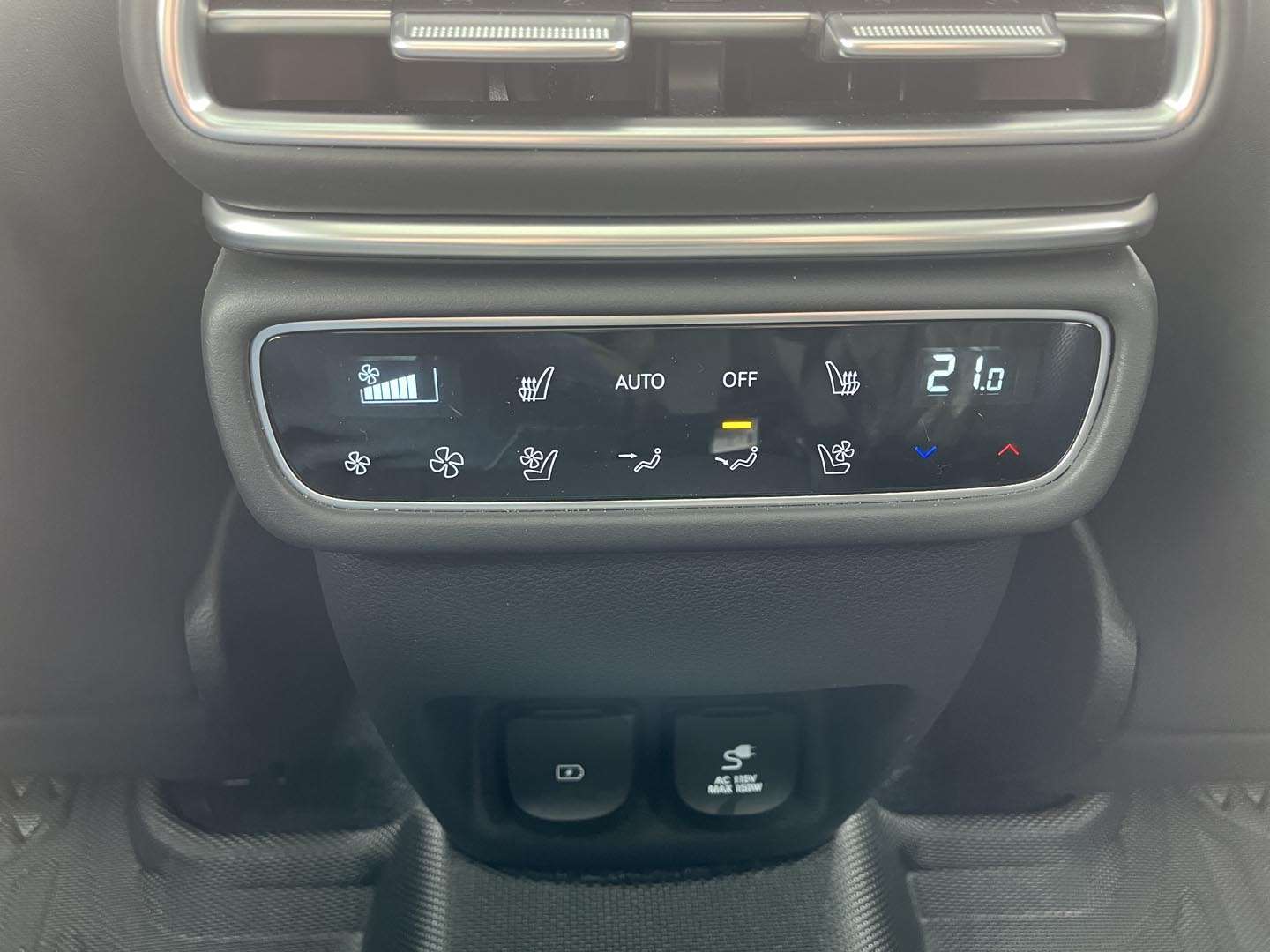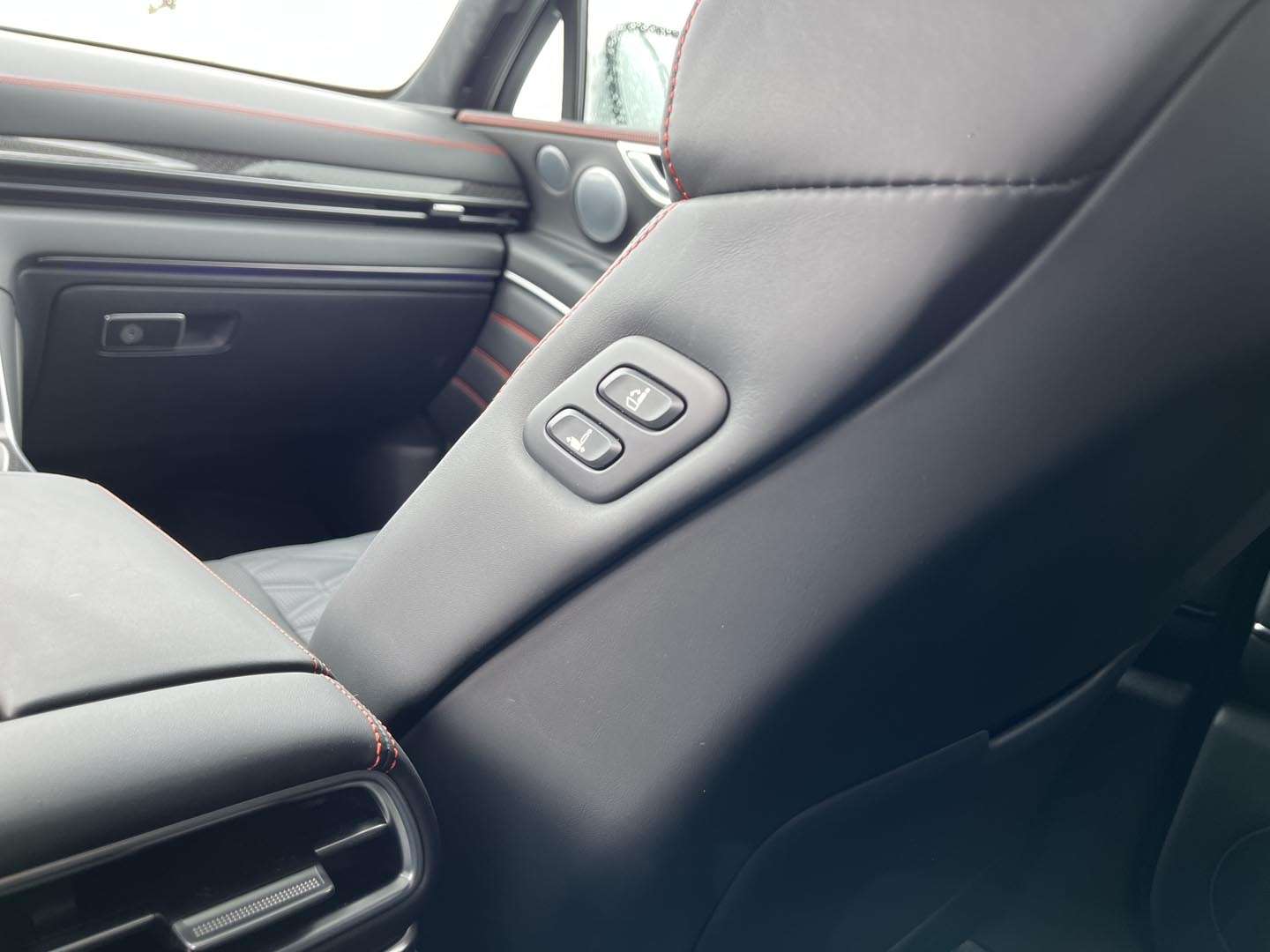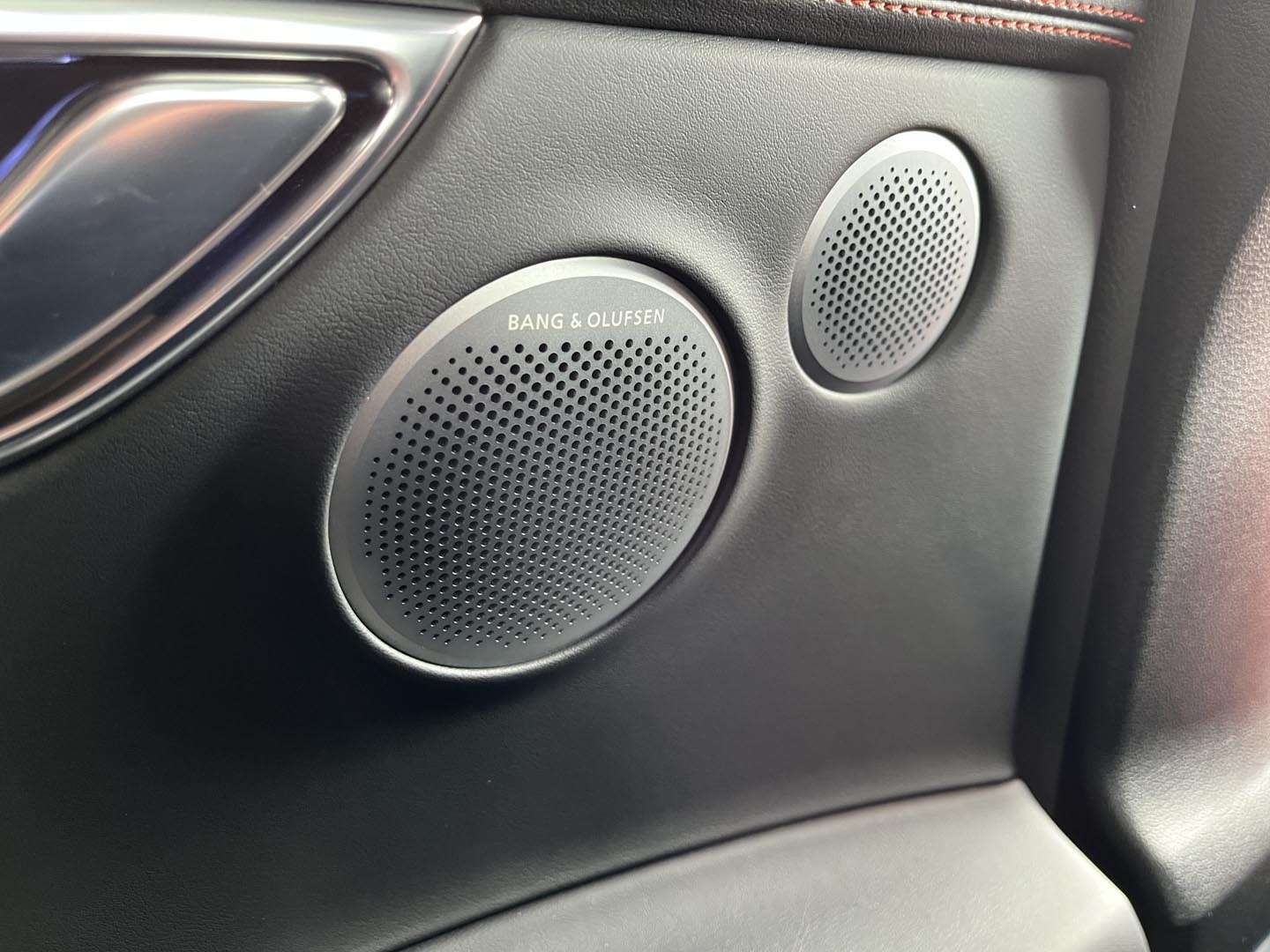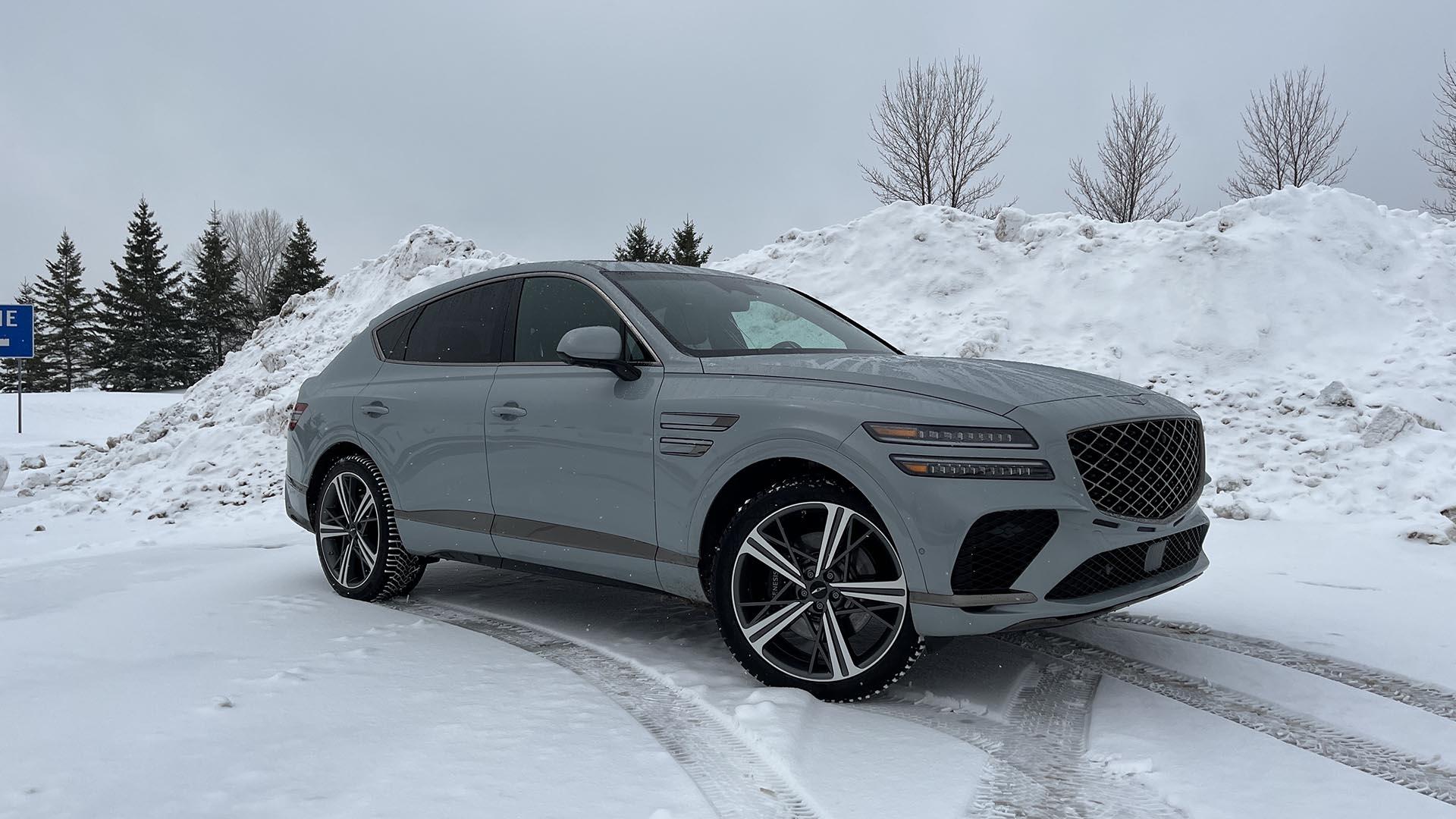
GENESIS GV80 Coupe 2025
Stand out smart
Pros and cons
Pros
- Safe and stable handling
- Smooth and refined engine
- Opulent finish
- Welcoming cabin for 4 adults
- Attractive and well-organized screens
- All-inclusive after-sales service
Cons
- Damping sometimes harsh
- Fairly high fuel consumption
- Limited cargo space
- Transmission sometimes hesitant
- Some unusual controls
Overview
The Genesis GV80 received a partial redesign in 2025, primarily focused on an updated interior. Hyundai's luxury subsidiary took the opportunity to diversify its offering by launching a Coupé version of its largest utility vehicle, following in the footsteps of the BMW X6, Mercedes-Benz GLE Coupe, and Porsche Cayenne Coupe.
Like these, the GV80 Coupe is distinguished by a very sloping roofline at the rear, designed to contrast with the more "family-oriented" look of traditional SUVs. The usual crossover attributes remain, such as all-wheel drive and a raised driving position.
The extensive equipment of the only trim level offered corresponds to that of a GV80 3.5T Prestige, with the notable exception of the engine. The coupe uses a mild-hybrid version of the brand's 3.5-liter twin-turbo V6, introduced in the G90 sedan in 2023. The inclusion of a 48-volt electric system and an electric supercharger boosts power while (slightly) reducing fuel consumption compared to the GV80 3.5T.
Aside from distinctive styling and a few decorative elements, this engine is the only element that differentiates the coupe from its conventional counterpart. Is that enough to justify an $8,500 premium, which brings the total price to $104,000 (including freight, preparation, and dealer fees)? It's up to you to decide, but one thing is certain: this sum is still at least $15,000 less than the price tag of a similarly equipped German rival.
Check out the Review section to find out our experts' opinions on the GV80 Coupe, which is assembled in South Korea.
Verdict
Usually, we're not big fans of these truncated utility vehicles that manufacturers like to refer to as coupes. First of all, in our humble opinion, a coupe has two doors, period. As soon as rear doors are present, it becomes a whole other species.
That said, we're especially against the compromises in space, visibility, and versatility imposed by these models. Why pay more for a vehicle that's less practical in every way, and often no more agile than its conventionally-bodied counterpart?
This is precisely where the GV80 Coupe surprised us. Its handling seemed a little sharper than that of a "normal" GV80 we tested just before. Yet, the two models share the same technical specifications, except for the engine, and are only 25kg (55lbs) apart on the scale. Furthermore, the rear seats of the coupe are less painful for taller occupants than in other vehicles of the same type.
It's no secret that at around $1,650 per month (including taxes and a minimum down payment of $1,000) for a 39-month lease, according to a July 2025 survey, Genesis' latest offering is aimed at a well-heeled clientele. A selective one too, due to its unique format, and unaffected by the dictates of German fashion. But perks like five years of home service and the automatic inclusion of a set of winter wheels and tires set the GV80 Coupe apart as much as its distinctive lines and the relative novelty of its nameplate.
Evaluation
A pleasant… and thirsty engine
The GV80 Coupe's supercharged mild-hybrid engine delivers 34 more horsepower than the GV80's 3.5-liter twin-turbo V6, which is already good for 375 horses. The torque gain is more modest, reaching 14 pound-feet, for a total of 405 pound-feet available from 1,300 rpm.
Performance is there, particularly on acceleration, even if the transmission sometimes hesitates to downshift. In normal driving, it rarerly needs to, since the combined blast of the supercharger and twin turbos helps maintain momentum. The engine also runs smoothly and with a convincing sound, although a BMW's inline-6 is even more flexible, powerful, and melodious. We also didn't find the GV80 Coupe any more lively than the conventional model.
On the other hand, the hybrid system seems to slightly improve fuel consumption. Tested immediately after a standard GV80, in late winter 2025, the coupe required about 5% less fuel. But at 14.8L/100km, more highway than urban driving, it's far from a bird's appetite, especially since you have to feed the beast with premium gasoline.
A bit more agile than the GV80, without being sporty
Unlike the "standard" GV80, which never had any sporting pretensions, the new coupe has a slightly more spirited image. This is probably why Genesis equipped it with 22-inch wheels, an electronically locking rear differential, and the more powerful V6 mentioned above as standard.
However, when you dig a little deeper, you'll notice that the GV80 3.5T Prestige has the same specifications, minus the mild hybrid engine. The two vehicles are also similar in size, including height. The coupe even tips the scales at 2360kg, 25kg more than the conventional SUV.
So we didn't expect the coupe to be more agile than the other. However, we noticed more responsive steering, particularly when entering corners, as well as less body lean. The Sport+ driving mode, exclusive to the coupe, accentuates the powertrain's reflexes.
That said, the connection with the road remains more vague than in a similar German product. The GV80 Coupe focuses primarily on stability at cruising speeds, with good tracking and a well-controlled body on bumpy roads. This remains true even if the very low-profile tires allow too many bumps to reverberate into the cabin. A 20-inch wheel and tire package, like the one supplied with most traditional GV80s, would have improved damping.
Roomy for people, less so for luggage
With their very sloping roof and tailgate, coupe-style utility vehicles usually impose sacrifices on rear occupants. For their heads first, as you might imagine, but often also for their legs, because some automakers move the rear seats forward to compensate for the loss of headroom.
Genesis has avoided these pitfalls, so two good-sized people can find comfort in the back. They just have to be careful not to hit their heads on the edge of the roof. The usual charging ports, independent ventilation controls, and heated seats await them, as well as much less common power adjustments for the rear seats.
The front seats are also welcoming, thanks to well-sculpted, multi-adjustable bucket seats. However, some might complain that the driver's seat doesn't recline far enough, or that their right knee rubs against the very wide center console.
Where the GV80 Coupe can't escape its shape is in the cargo area. The steep slant of the tailgate cuts out several liters of cargo space and limits the transport of tall items. If you need to bring them, you have to fold down the rear seatbacks and say goodbye to the rear seats.
Chic, high-tech, and reasonably simple inside
Since its inception, Genesis has always paid particular attention to the design and quality of its interiors. This young tradition continues in the GV80 Coupe, where Nappa leather, brushed aluminum, and a wealth of soft-touch surfaces blend harmoniously. To emphasize the vehicle's energetic image, carbon fiber-look trim replaces the usual wood trim, complemented by red stitching and a flat-bottomed steering wheel. Several shades are available depending on the body color, including bold and striking forest green and navy.
Those who are sold on the sleek look will undoubtedly appreciate the new continuous screen that stretches from the driver's side to two-thirds of the dashboard, combining the instrument cluster and infotainment system. Others will miss the luxurious and classic touch brought by the cluster and its finely designed dials in previous GV80s.
Genesis took the opportunity to redesign the controls, with some positive aspects—the return of traditional round knobs for the radio, for example—and some negative—the introduction of touch-sensitive buttons instead of physical ones for the infotainment. Overall, the layout remains more intuitive than in most luxury vehicles, especially since you can interact directly on the screen or with a large knob on the console.
Strangely, the open storage under the console has disappeared, but the manufacturer has relocated the charging ports to a cubby under the climate controls. This is a good thing, since at the time of our test, you still had to plug in your mobile device to use Android Auto or Apple CarPlay.
The Luxury of Service
Genesis isn't the only luxury brand to offer free maintenance. But no rival offers it for as long as 5 years/100,000 km, whichever comes first. The vehicle pickup service at home or at work also stands out, especially since it comes with a courtesy loaner. Combined with the all-inclusive price, and in the absence of multiple complex optional packages, this comprehensive offering can really make life easier for the target audience.
The GV80 Coupe adds another layer, as it's the manufacturer's first vehicle, and one of the first in the industry, whose retail price includes a set of premium winter wheels and tires. There's no need to negotiate, and seasonal installation is also included!
This probably explains part of the $8500 premium that separates the coupe from the equivalent GV80 3.5T. But for many people, contemporary luxury isn't measured solely by the quality of materials, the number of gadgets, or soundproofing. The kind of turnkey solution offered by Hyundai's prestigious subsidiary could convince them to jump the fence.
Safety features
- Antilock brakes with electronic brakeforce distribution and brake assist
- Stability and traction control
- Hill-start assist
- Hill descent control
- Front airbags
- Driver's knee airbag
- Airbag between the front seats
- Front side airbags
- Side curtain airbags
- Front seatbelt pretensioners
- Five adjustable head restraints (rear anti-whiplash)
- Rear occupant alert
- Rearview camera
- Tire pressure monitor
- Forward collision alert
- Forward automatic emergency braking with pedestrian and cyclist detection
- Lane departure alert with steering assist
- Lane centering assist
- Automatic high-beams
- Blind-spot monitoring with automatic steering assist
- Rear cross-traffic alert
- Adaptive cruise control
- Front and rear parking sensors
- Rear automatic emergency braking
- Surround-view monitor
Crash test results
National Highway Traffic Safety Administration
Overall score: 5/5
Frontal impact: 4/5
Side impact: 5/5
Rollover resistance: 4/5
Insurance Institute For Highway Safety
Moderate overlap frontal impact: 4/4
Small overlap frontal impact: 4/4
Side impact: 4/4
Among the best vehicles in its segment (Top Safety Pick+ award)
